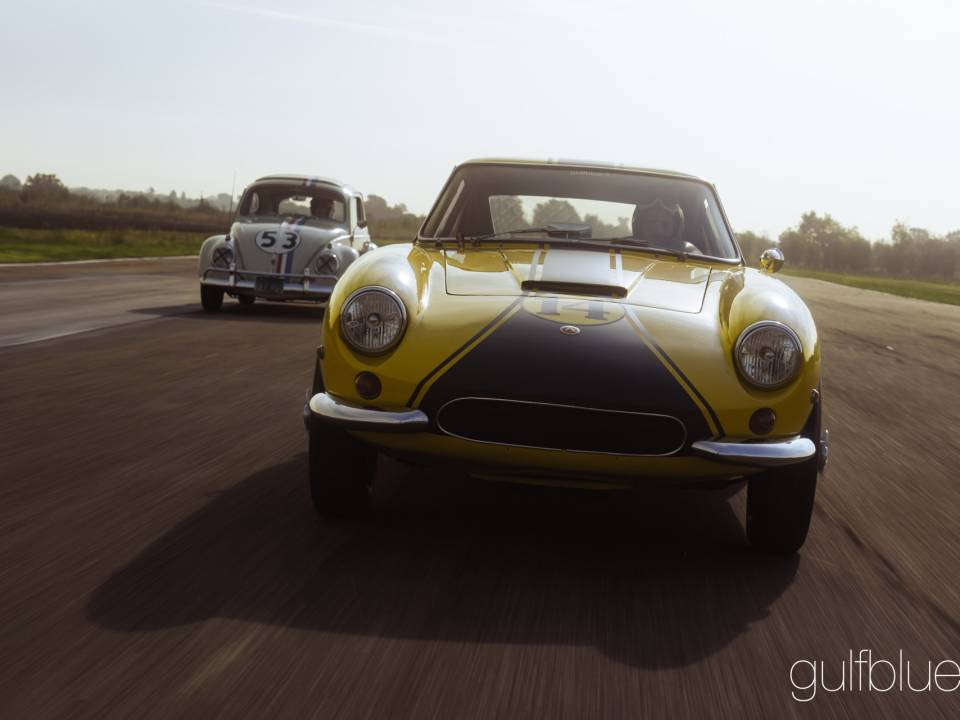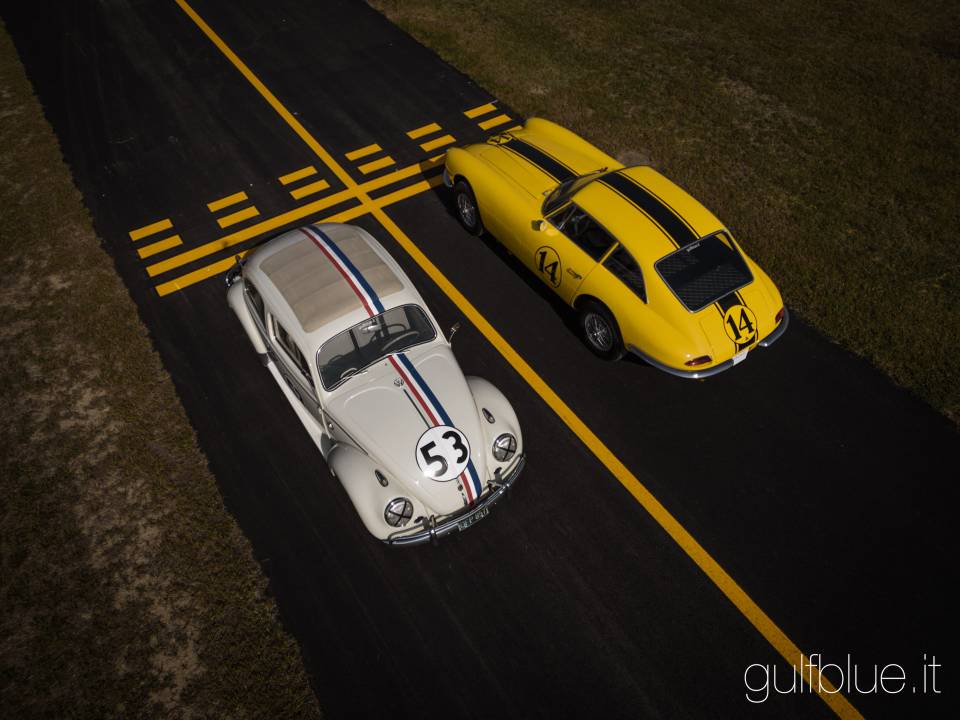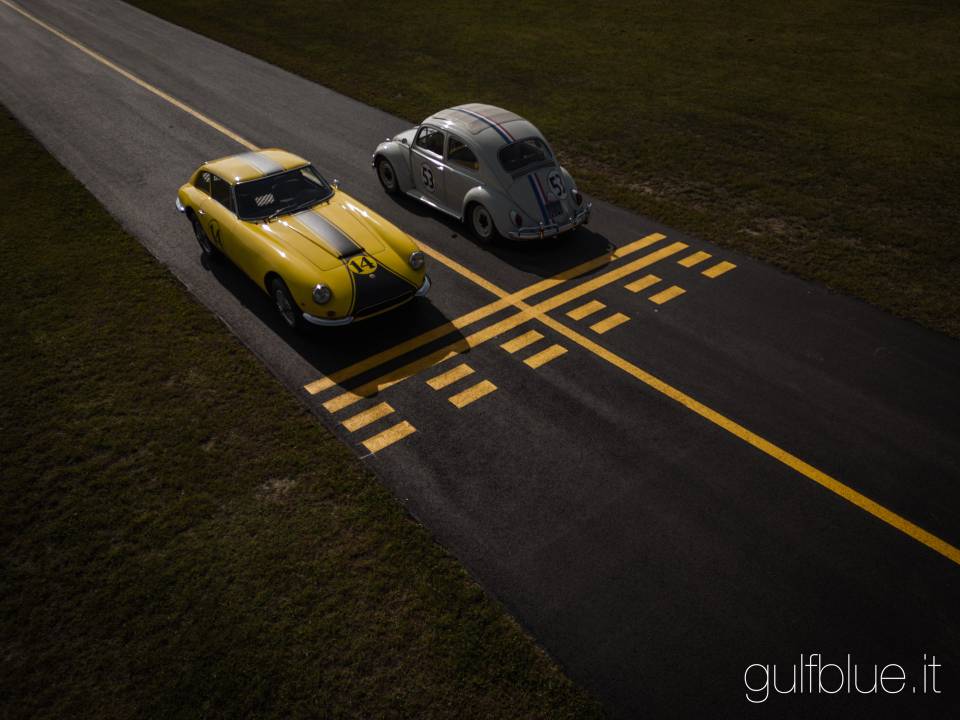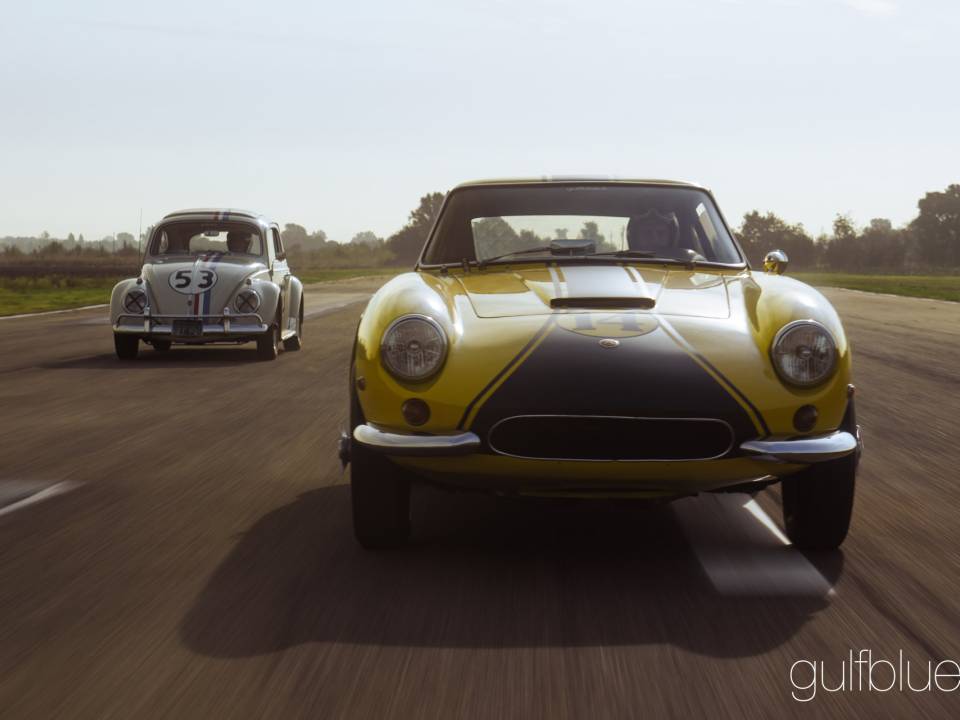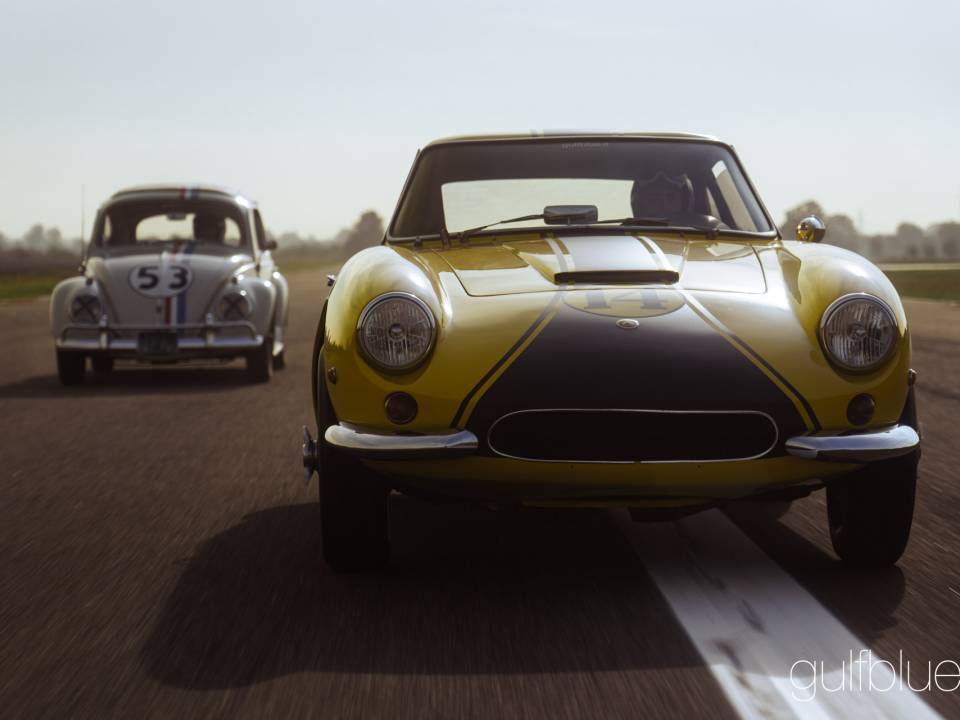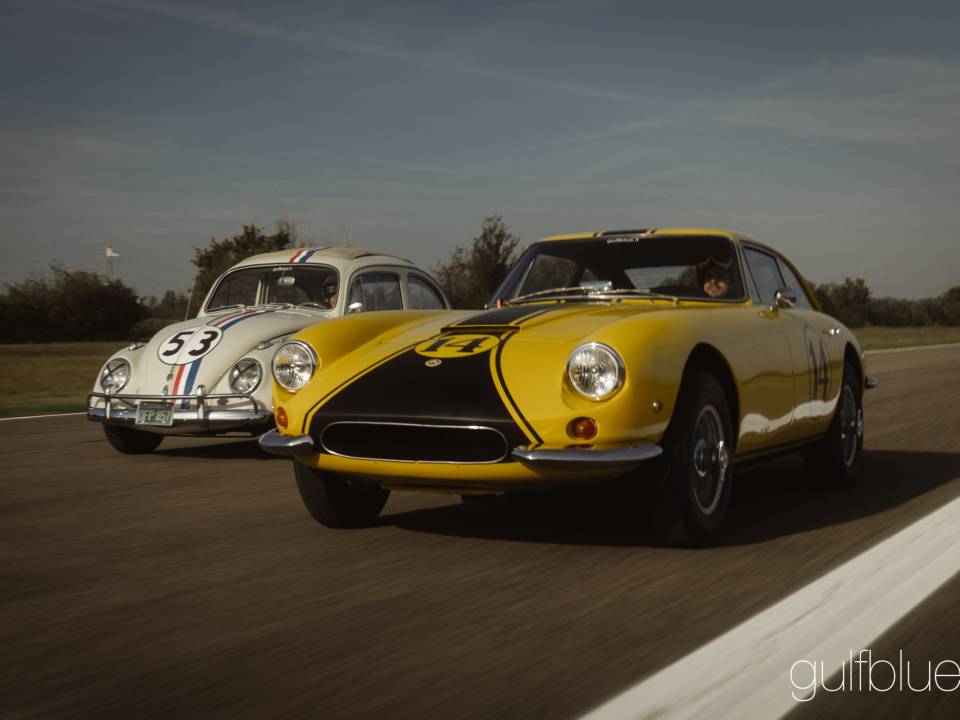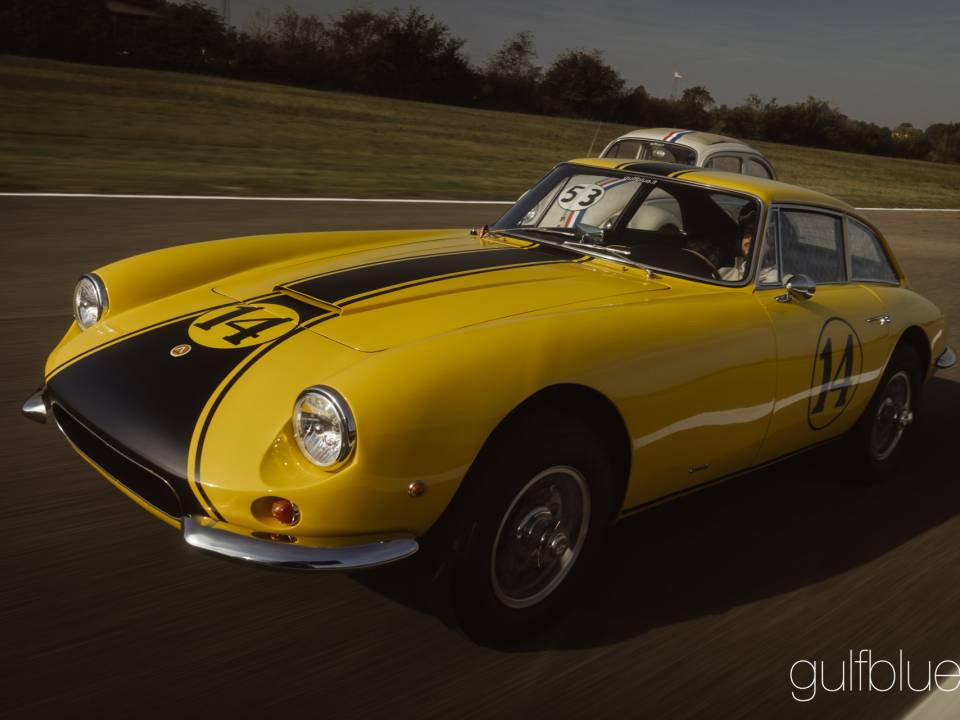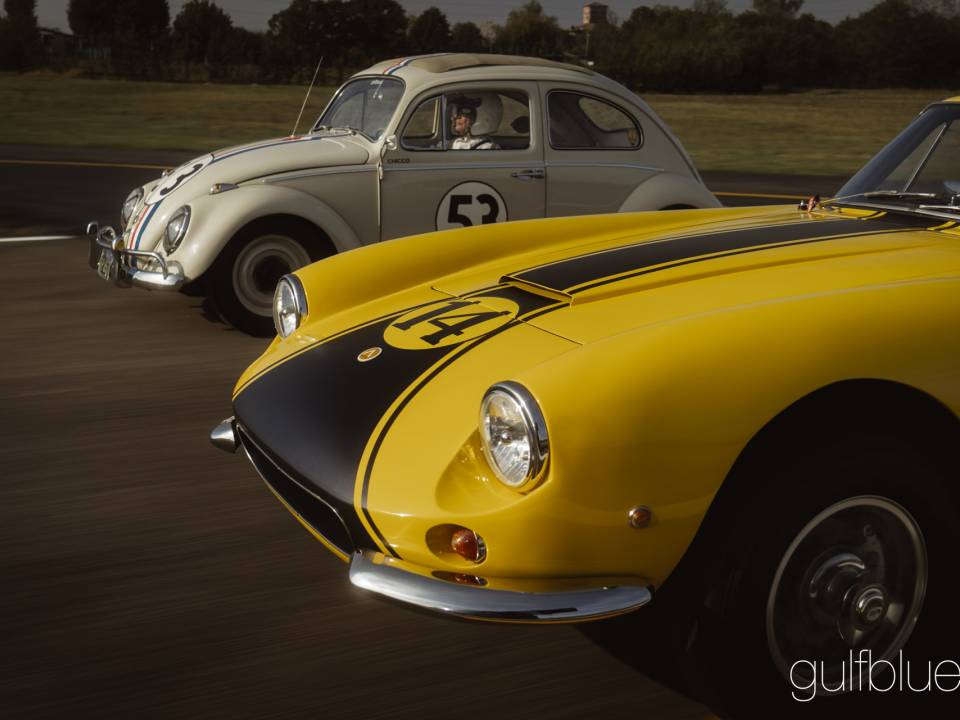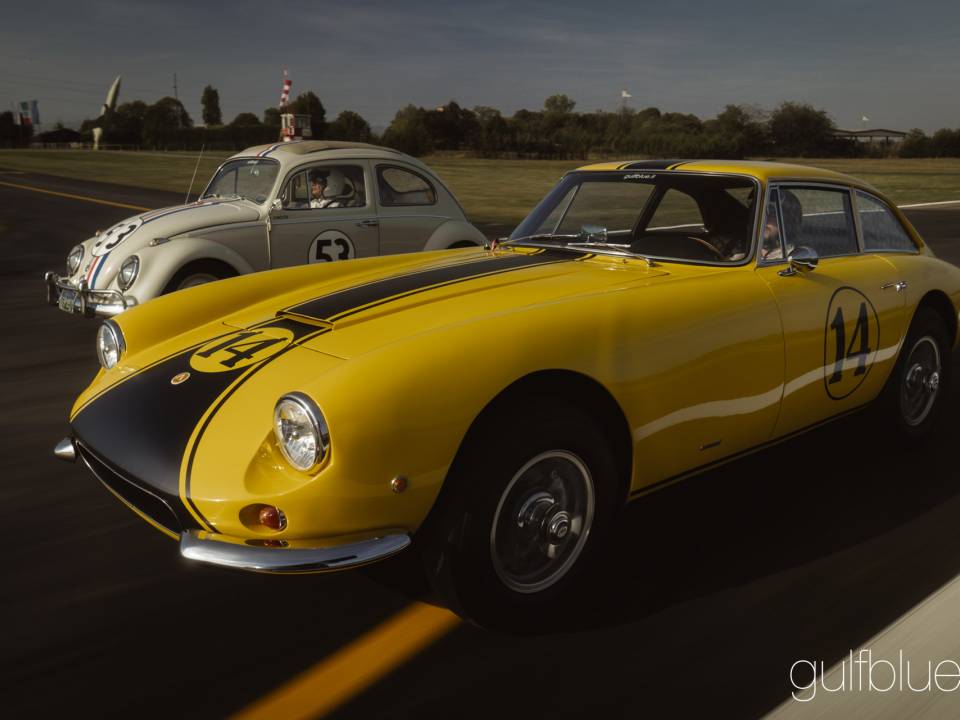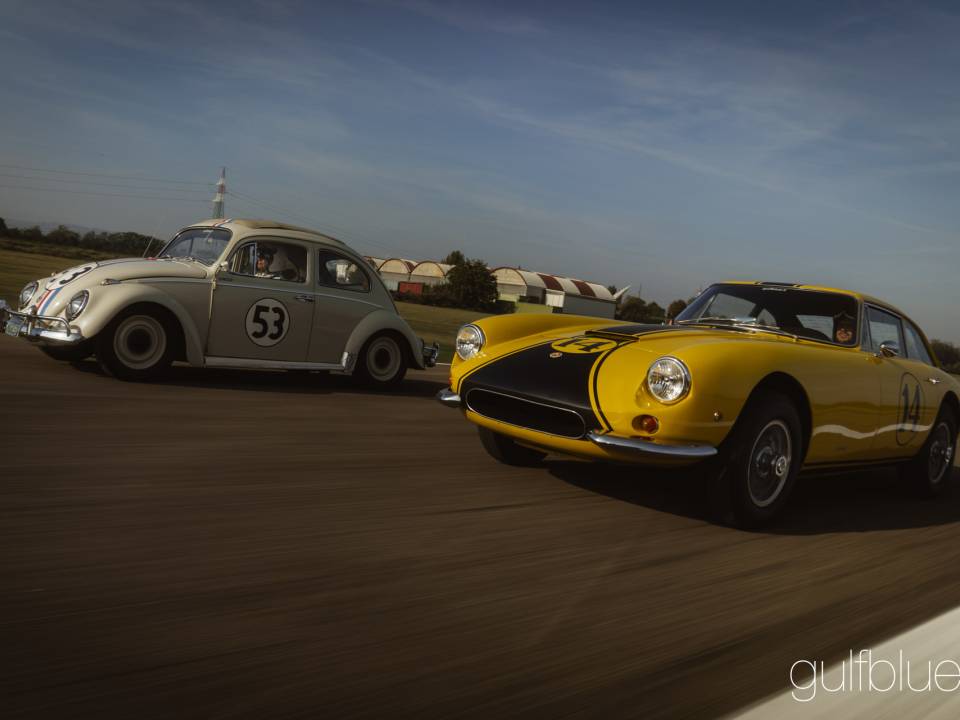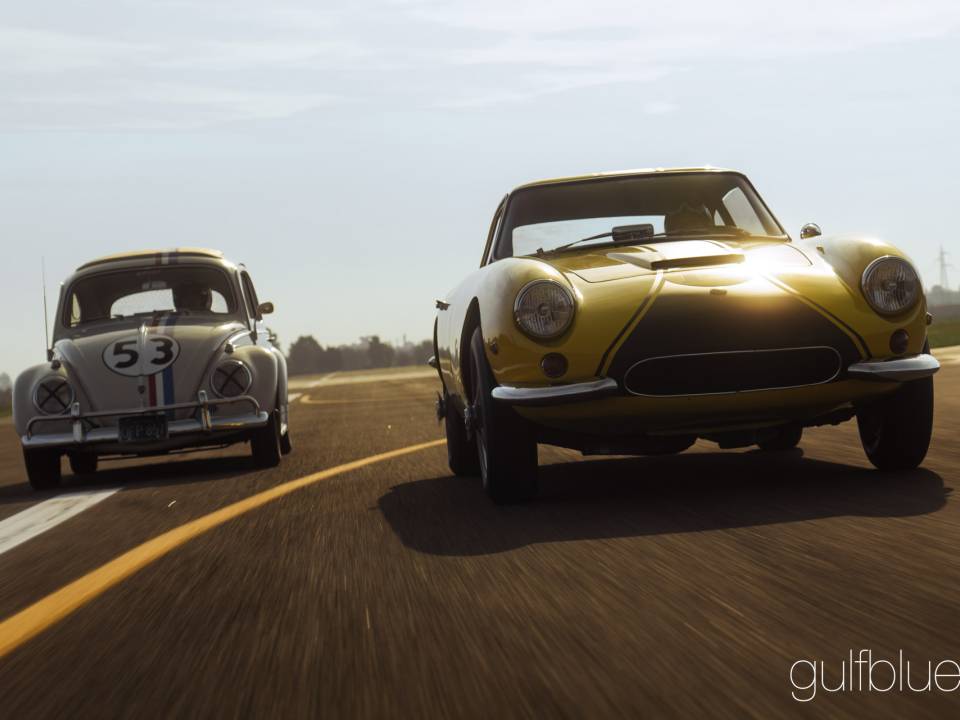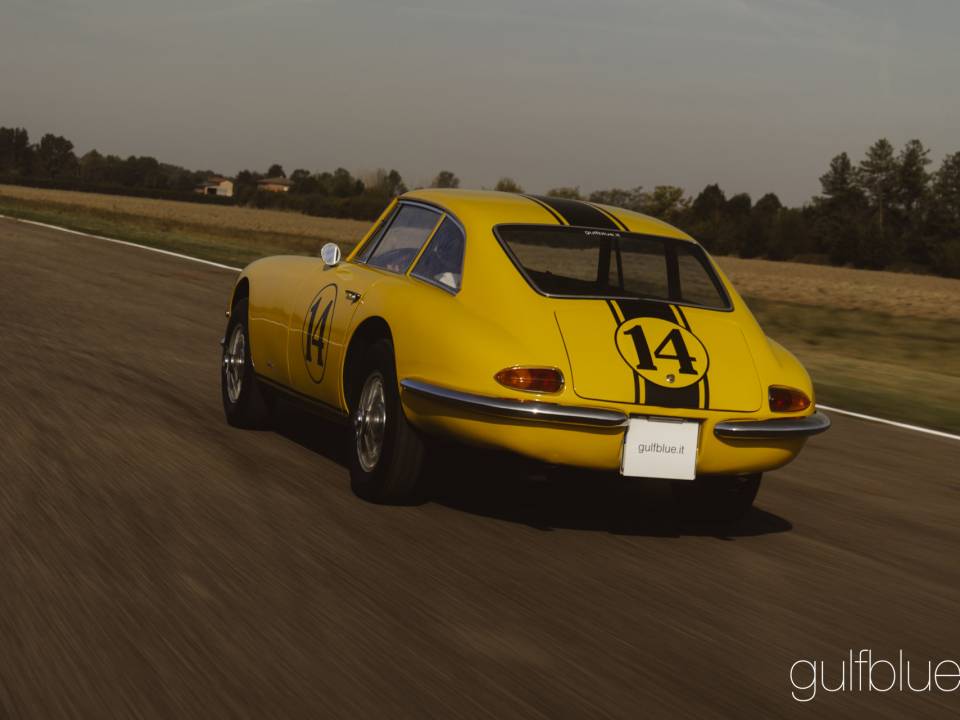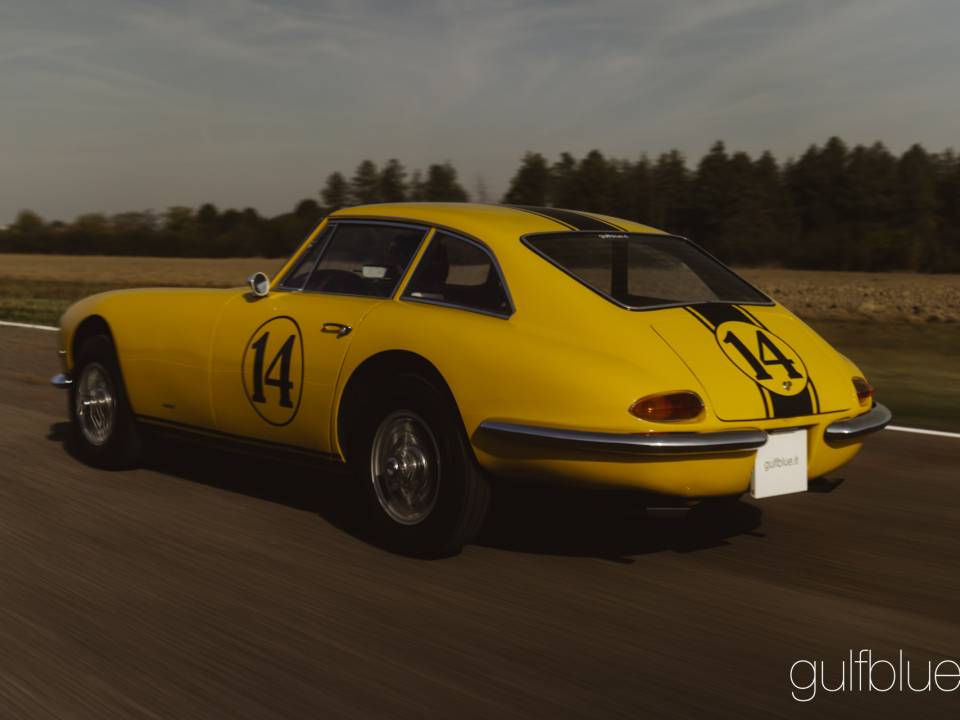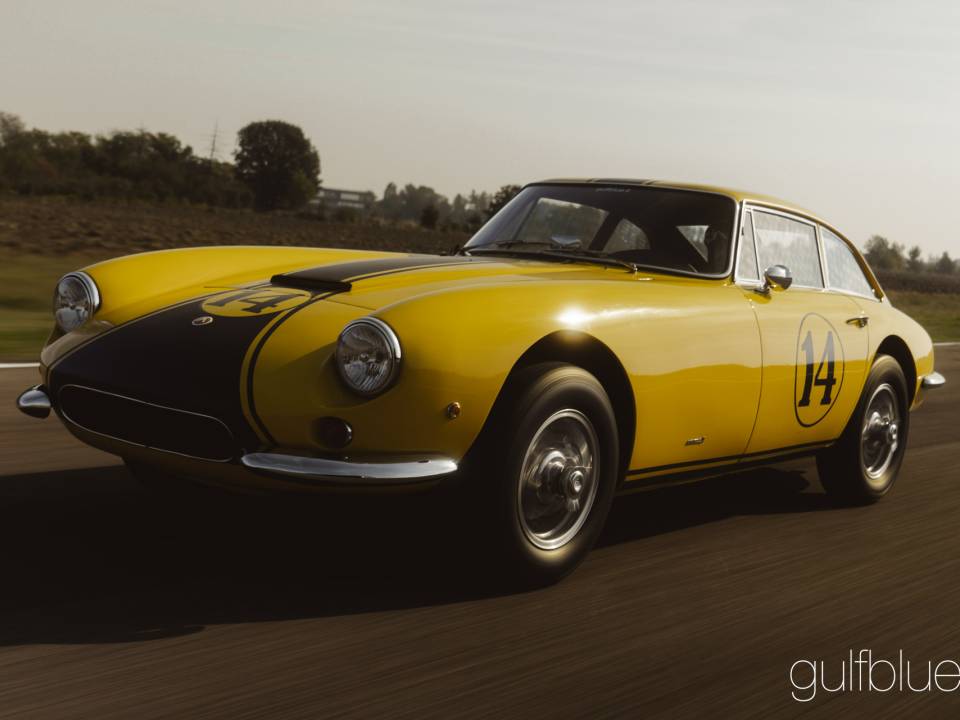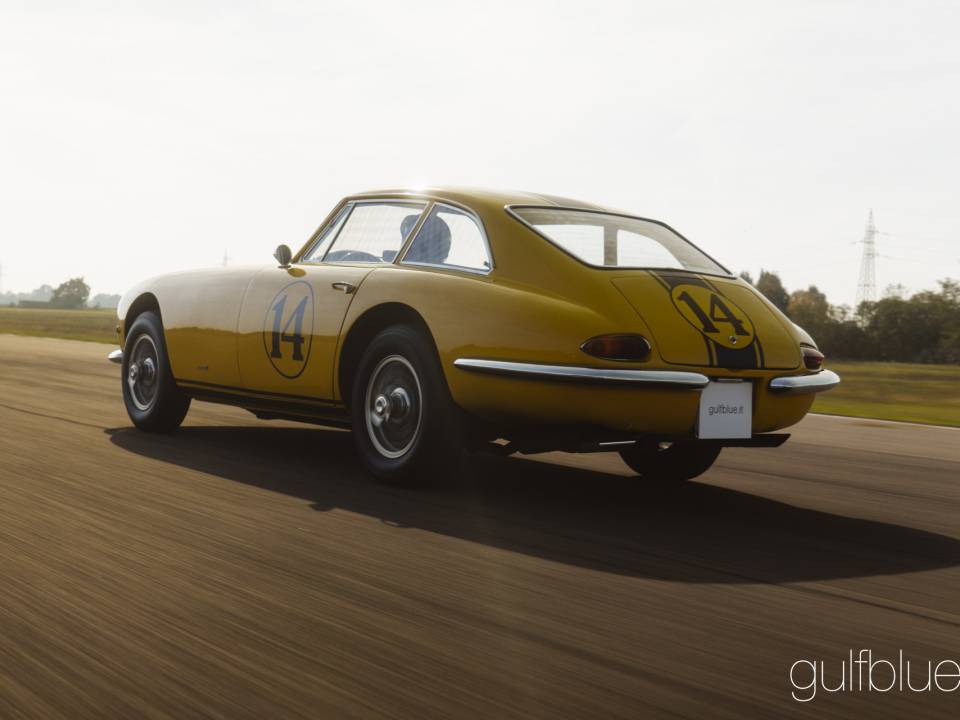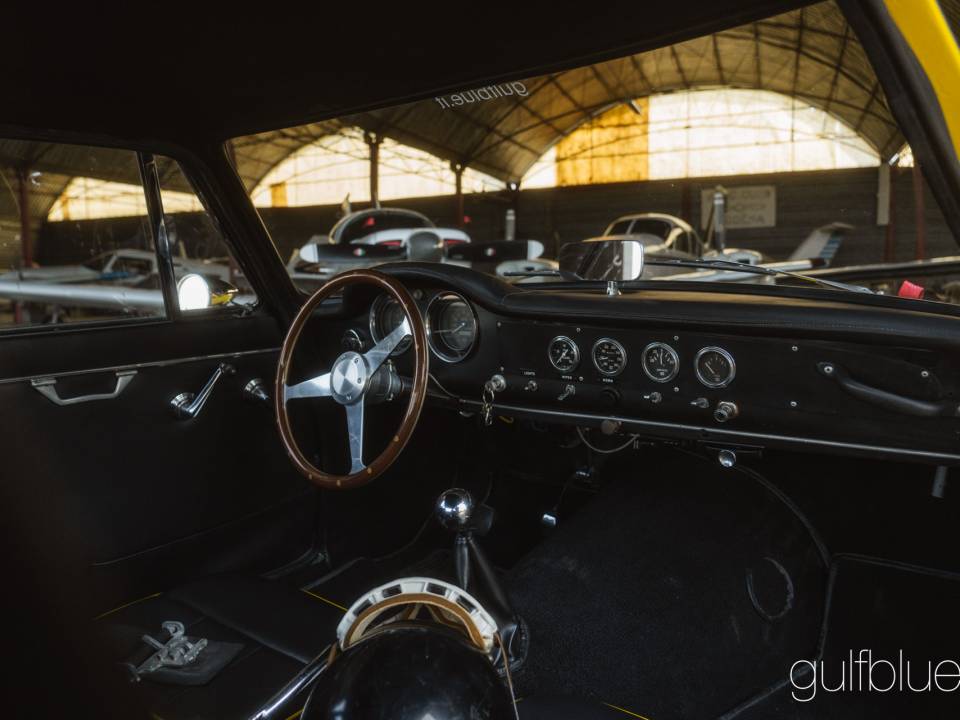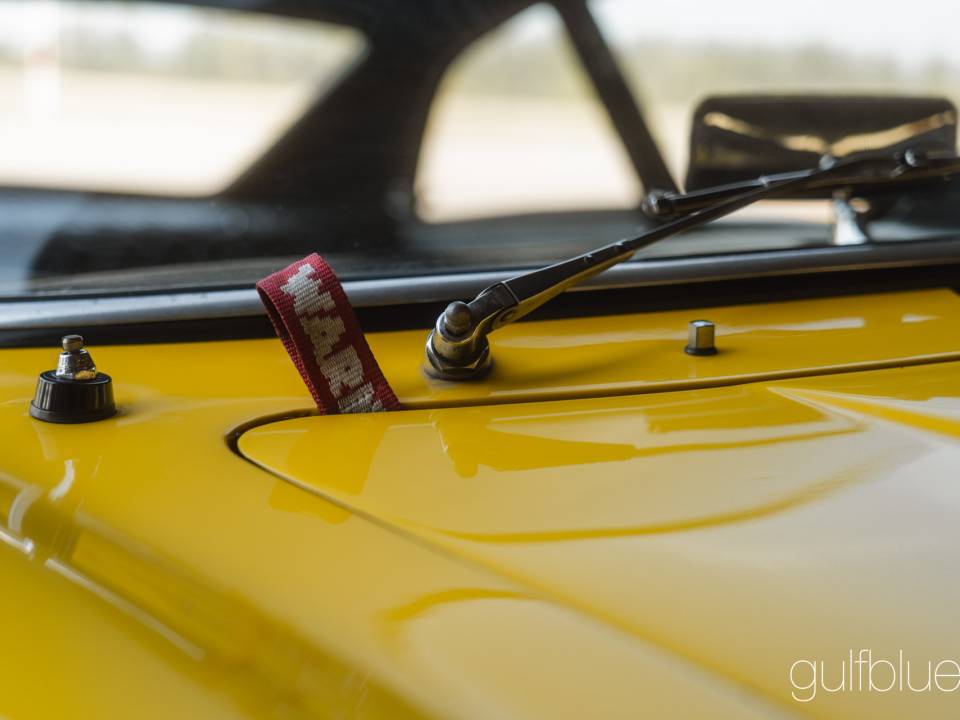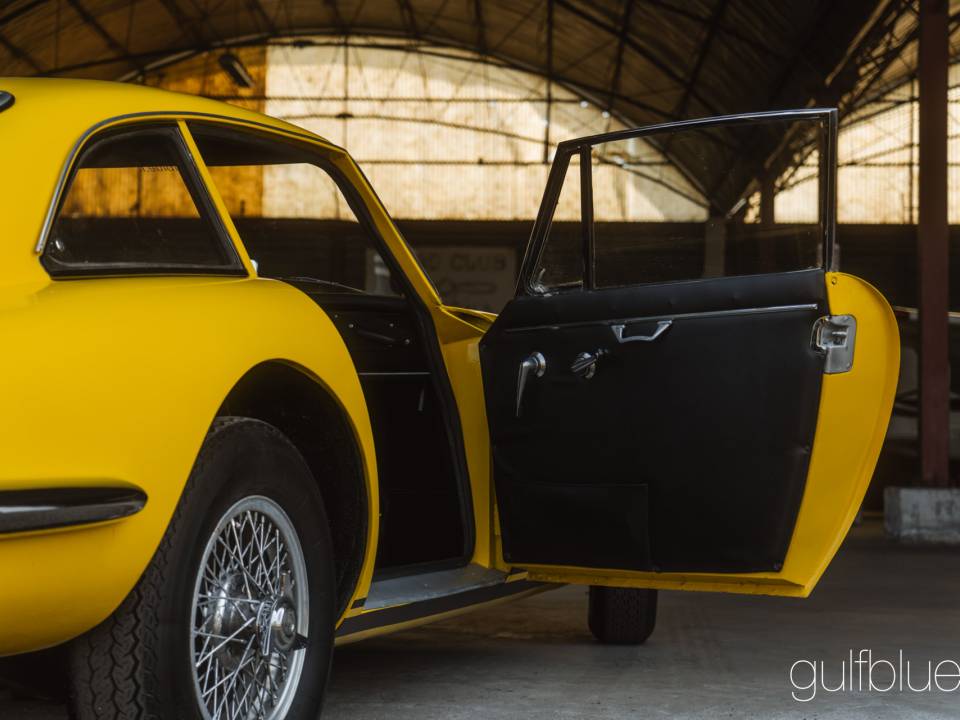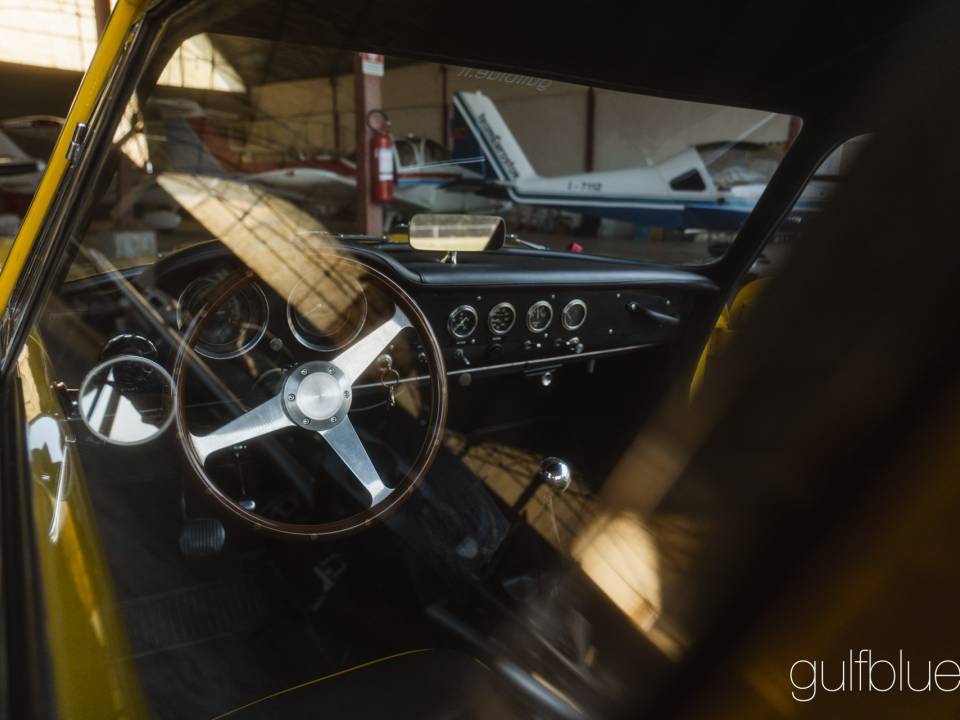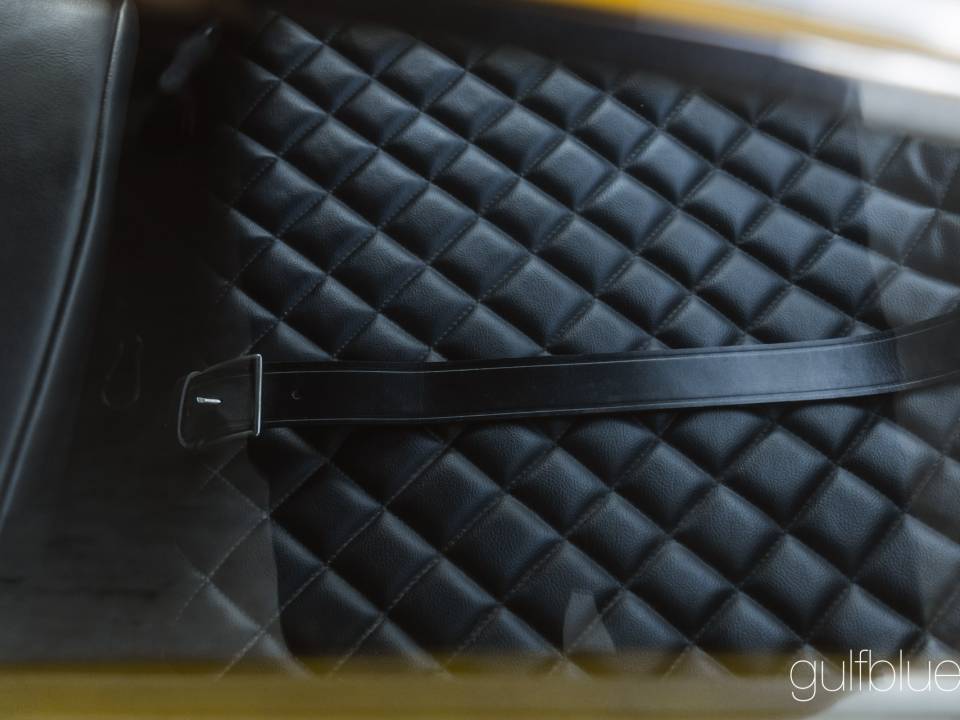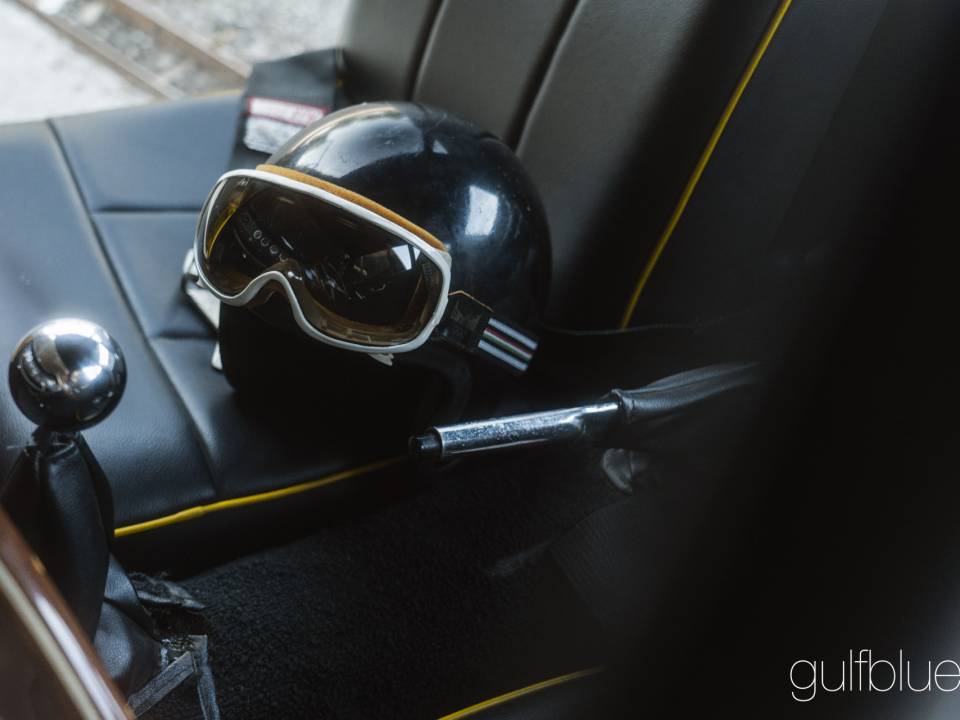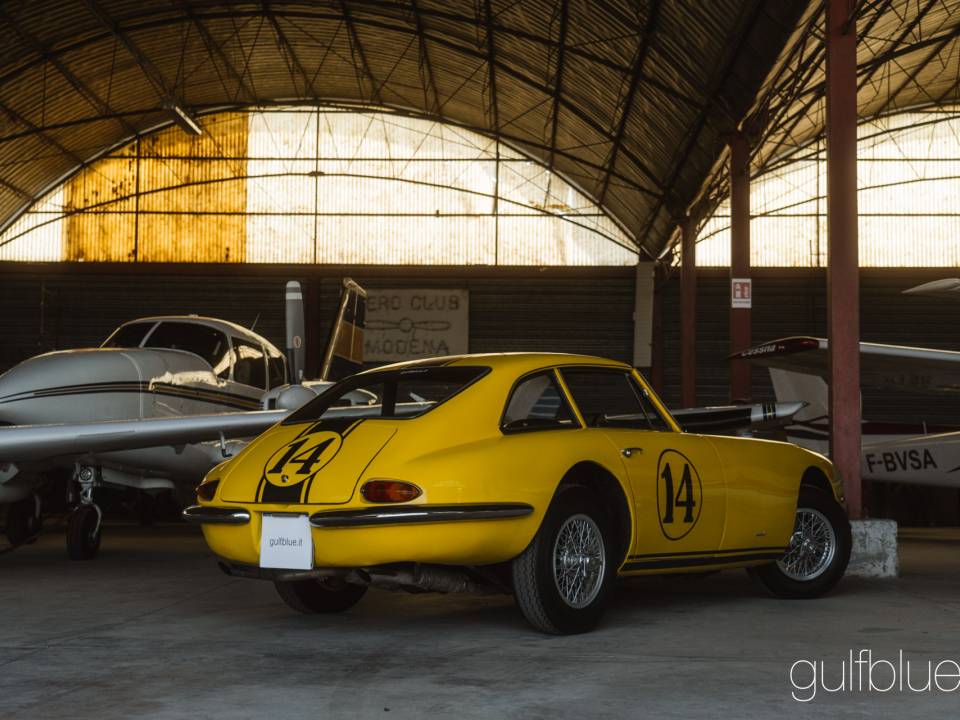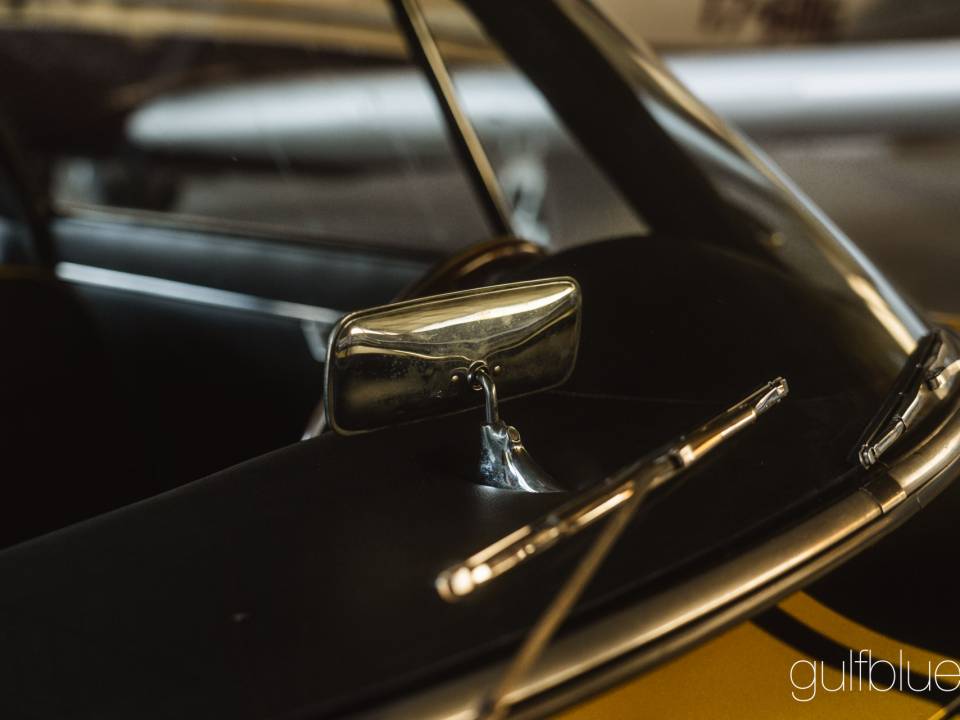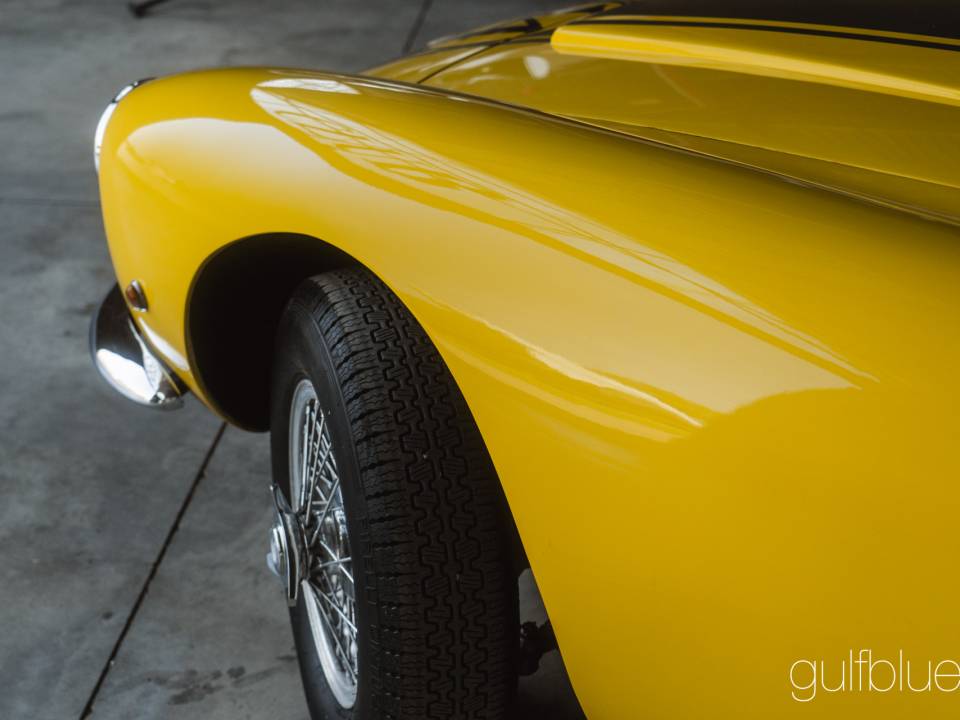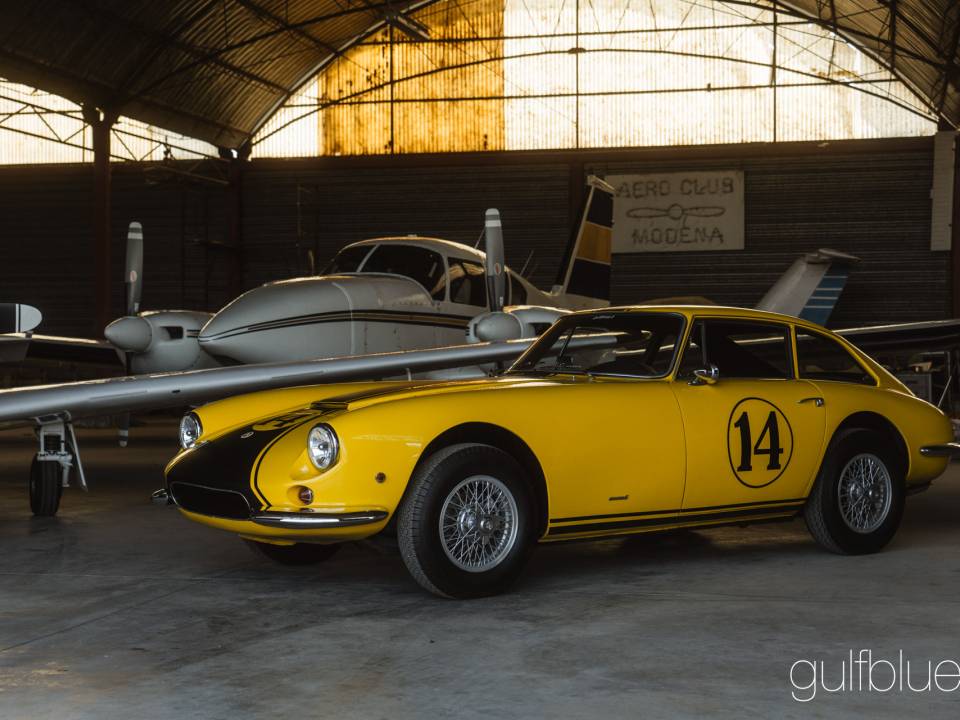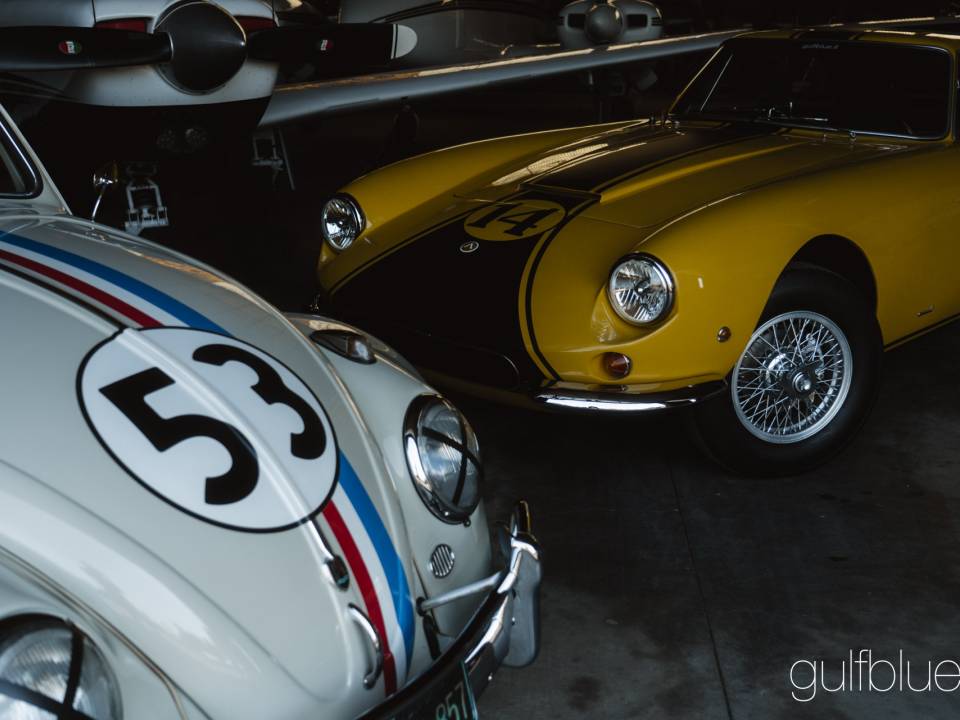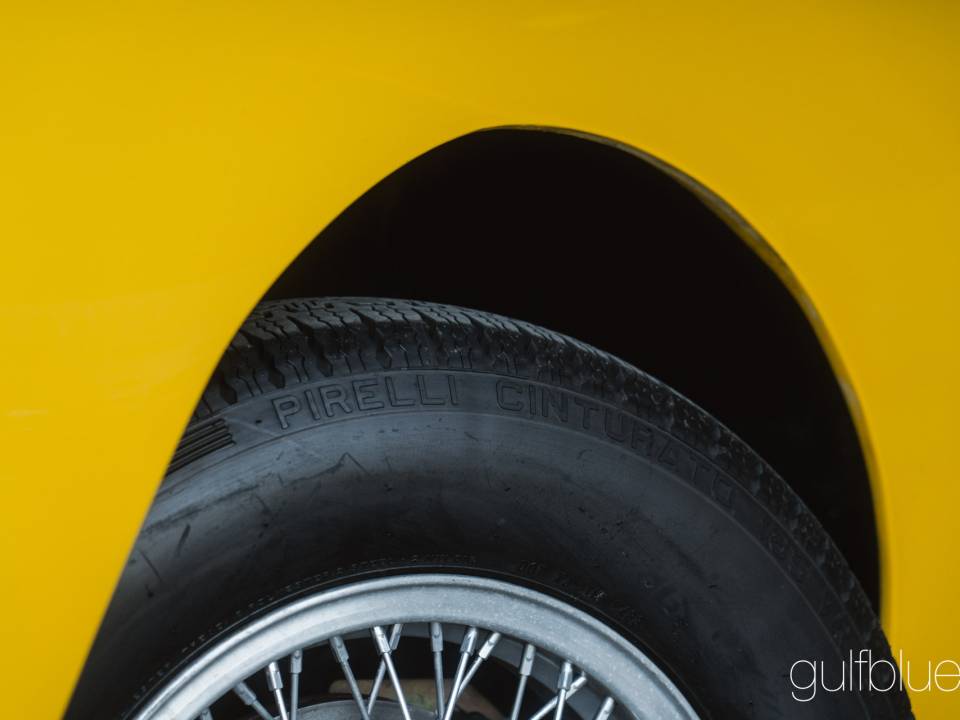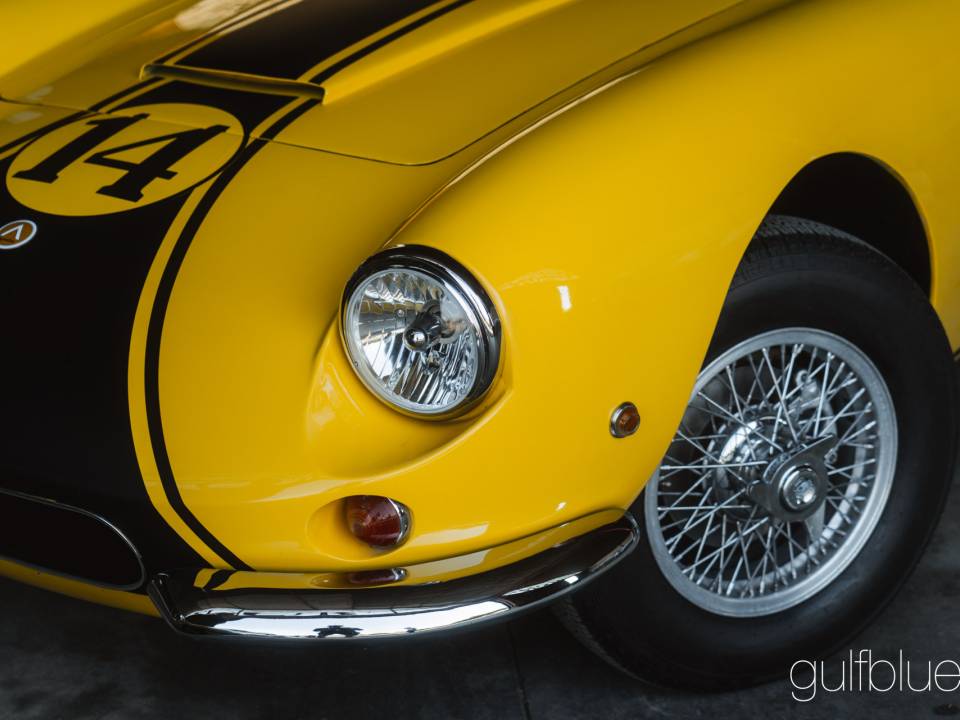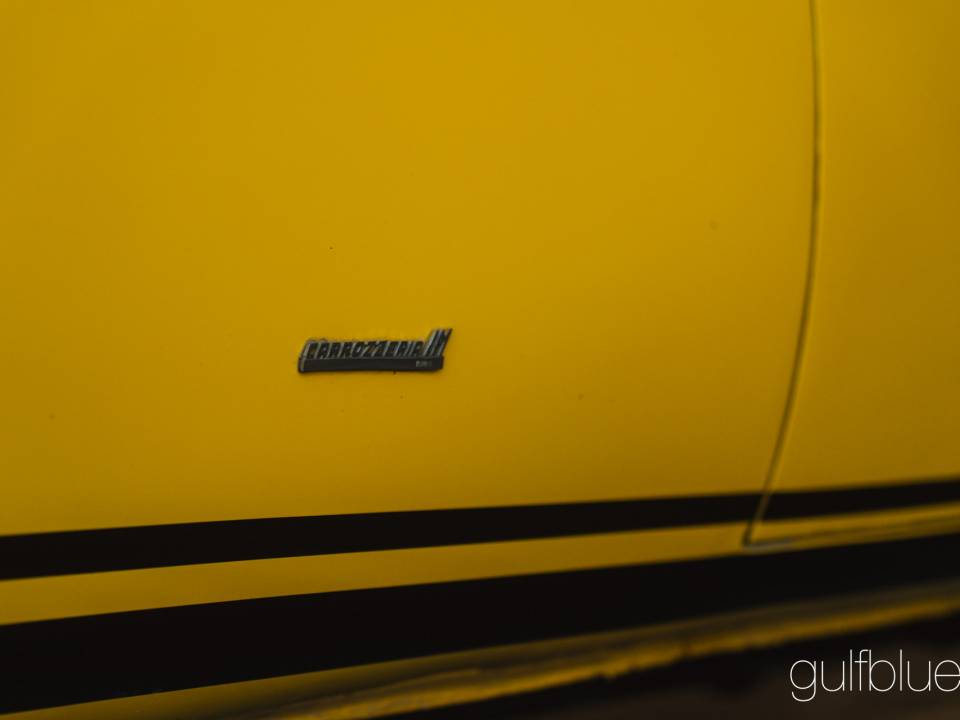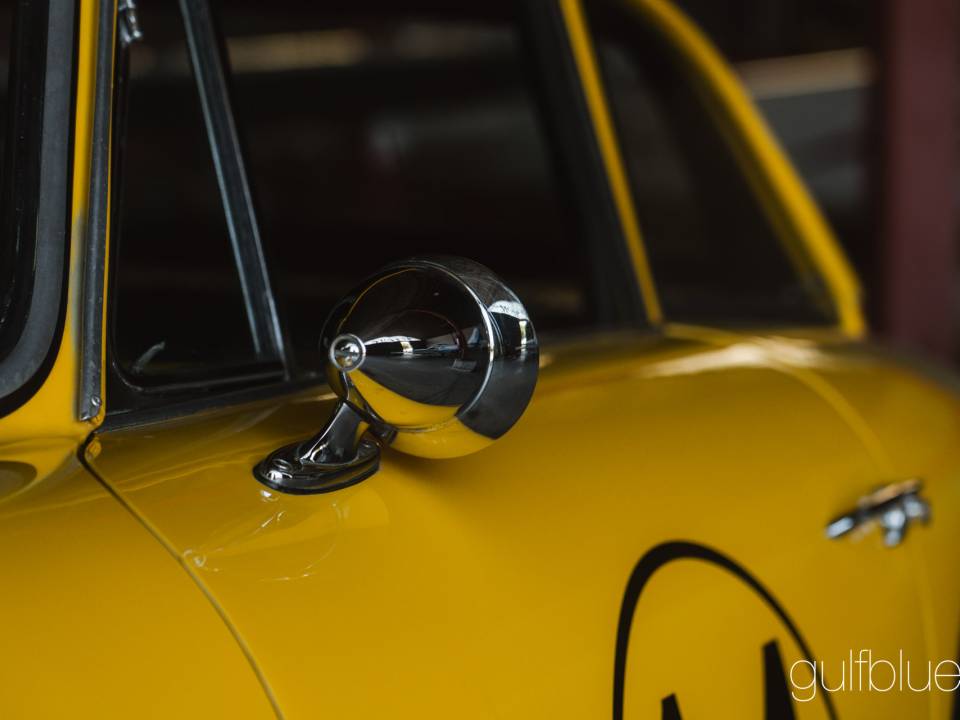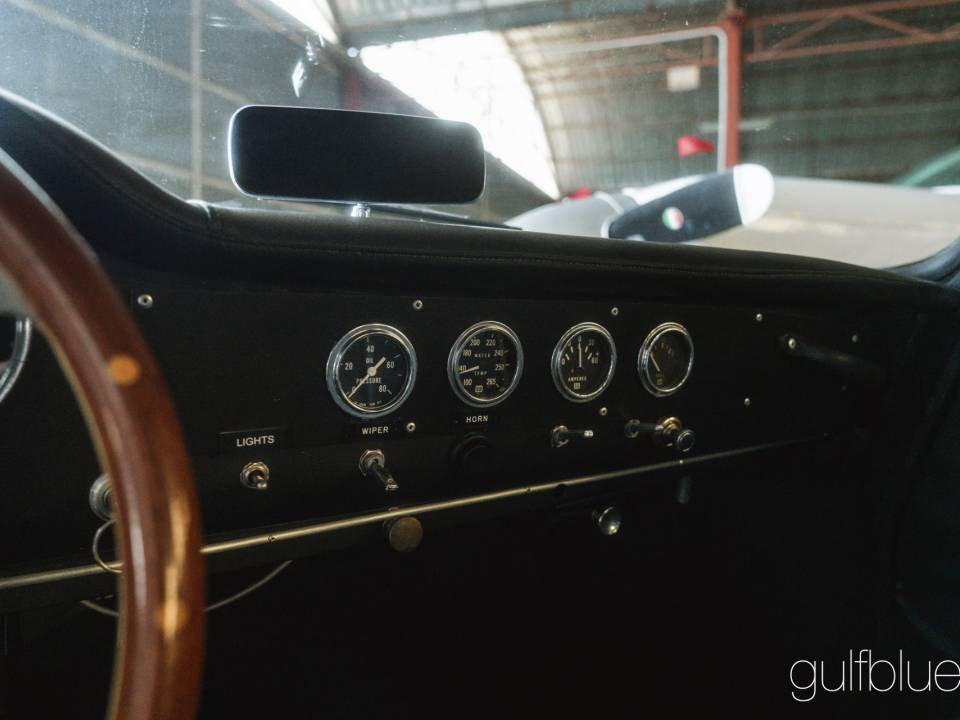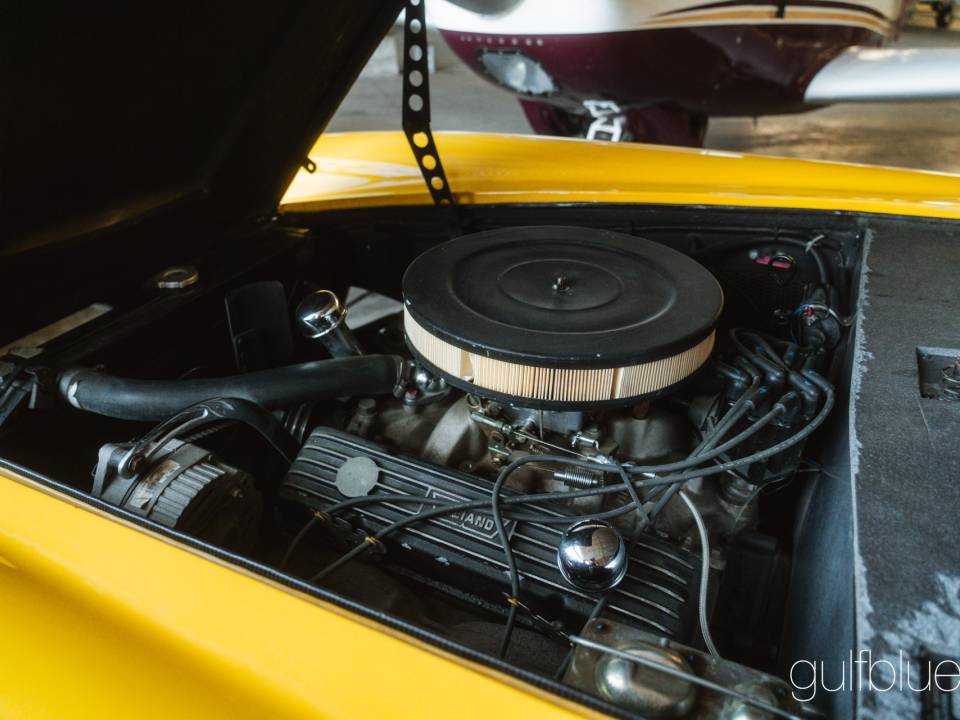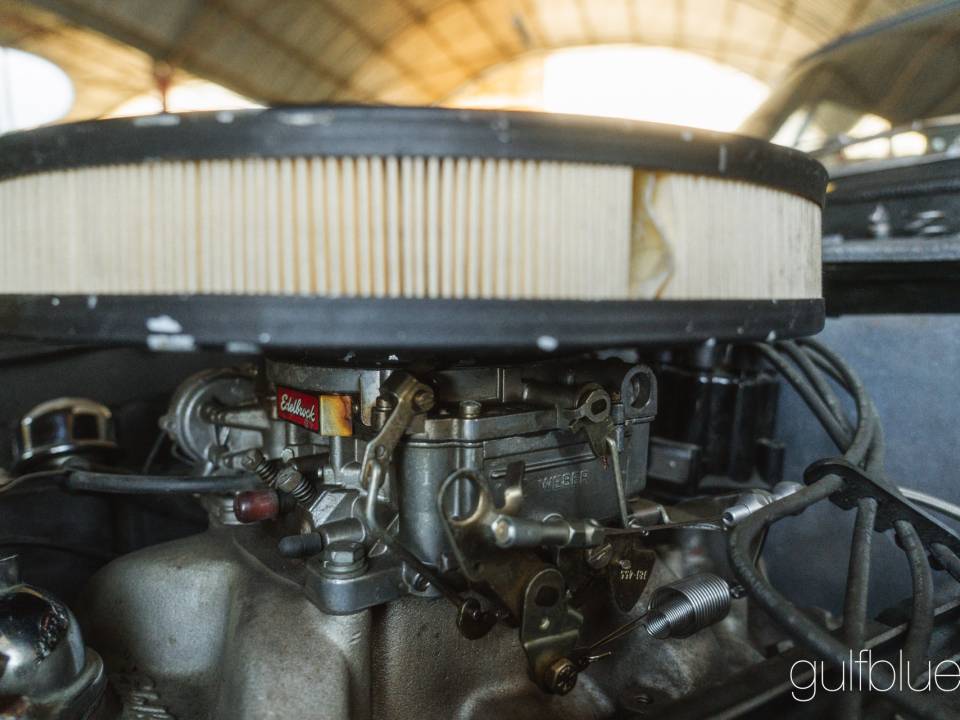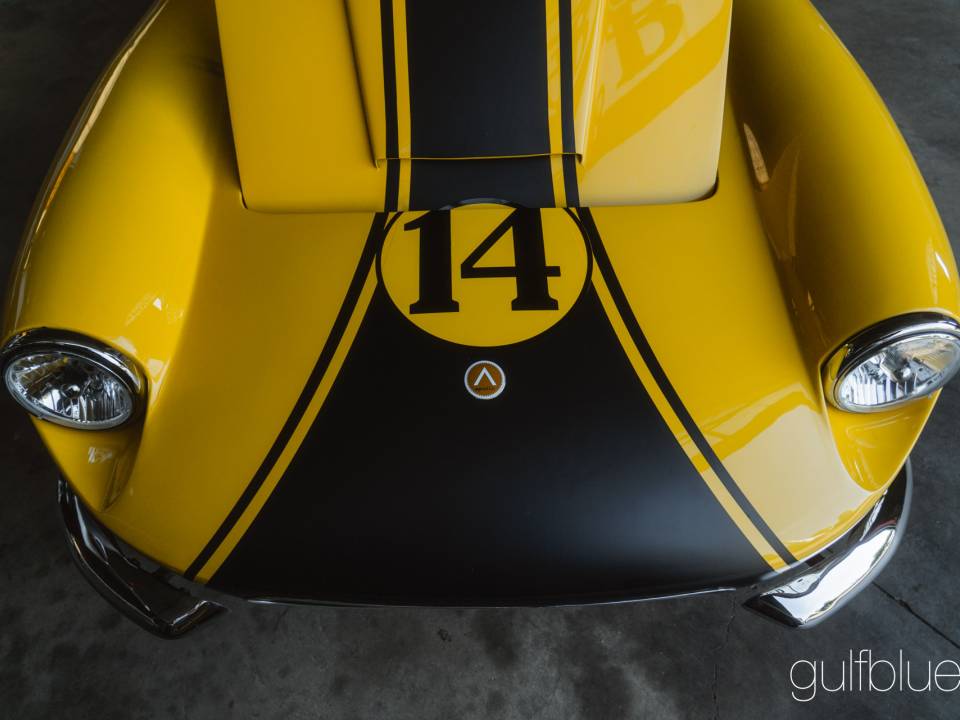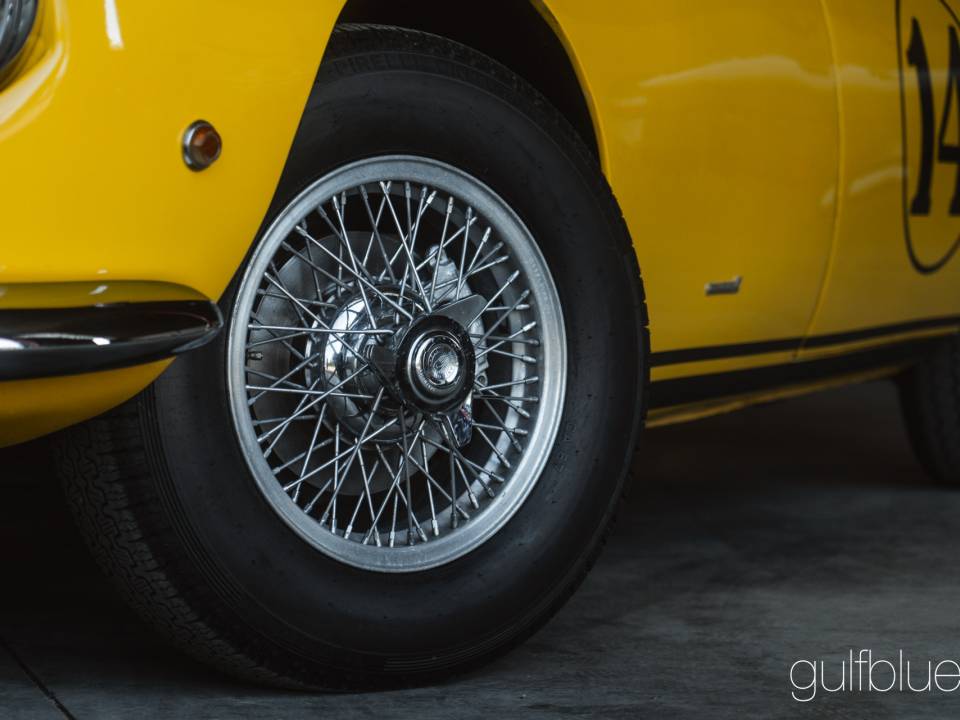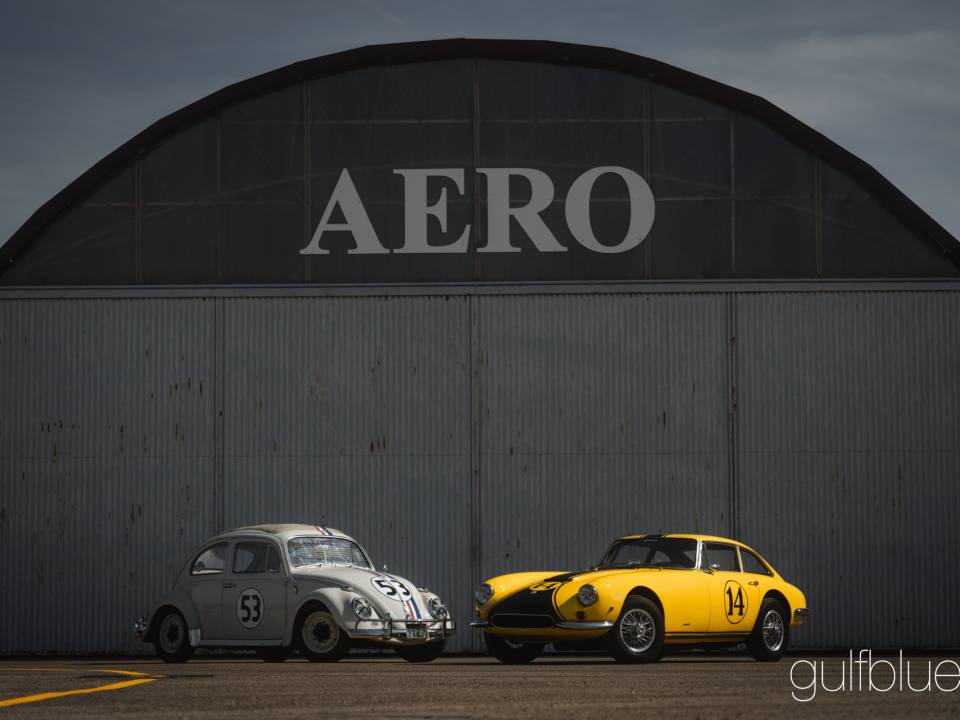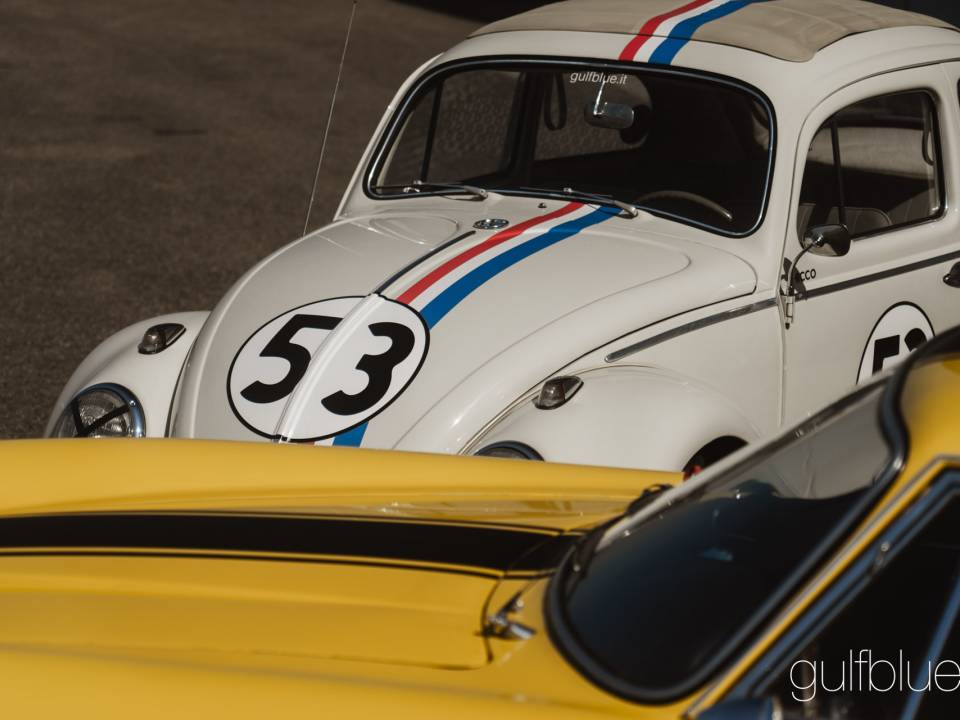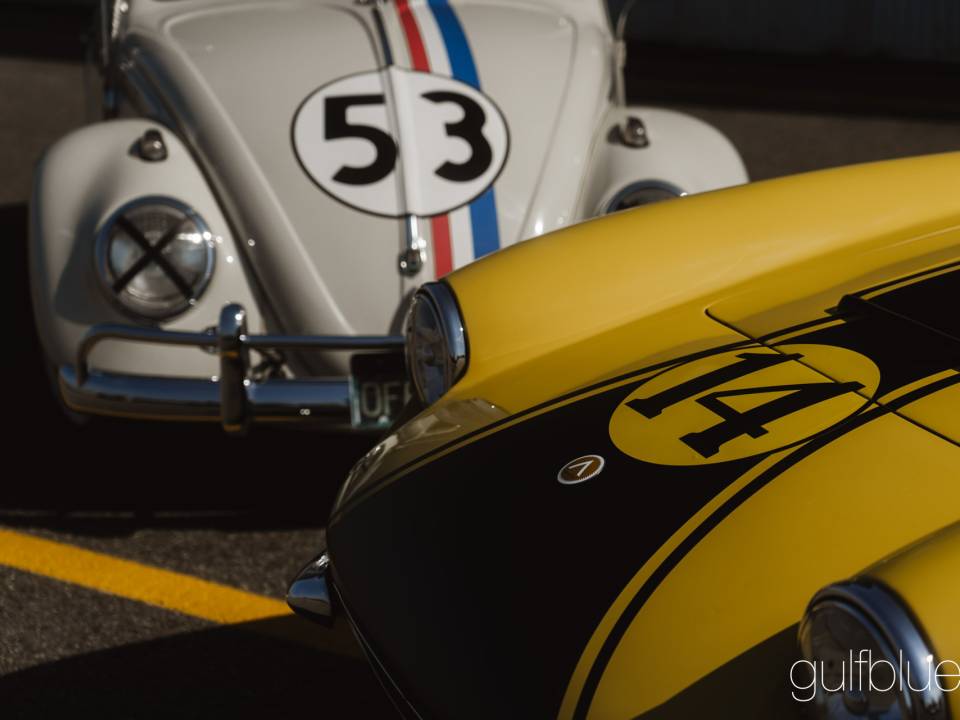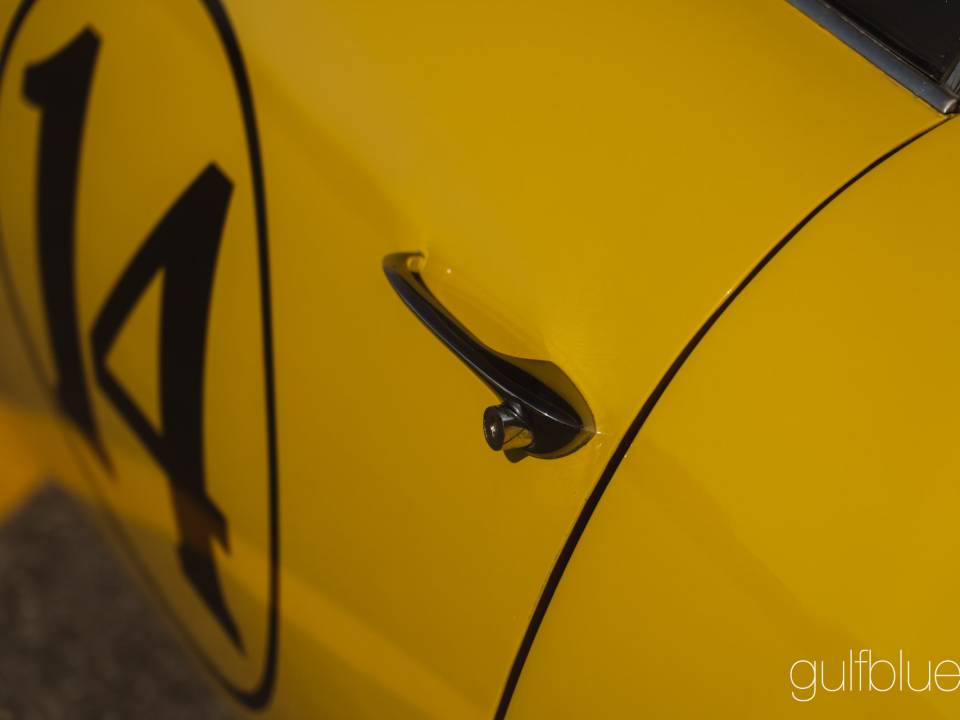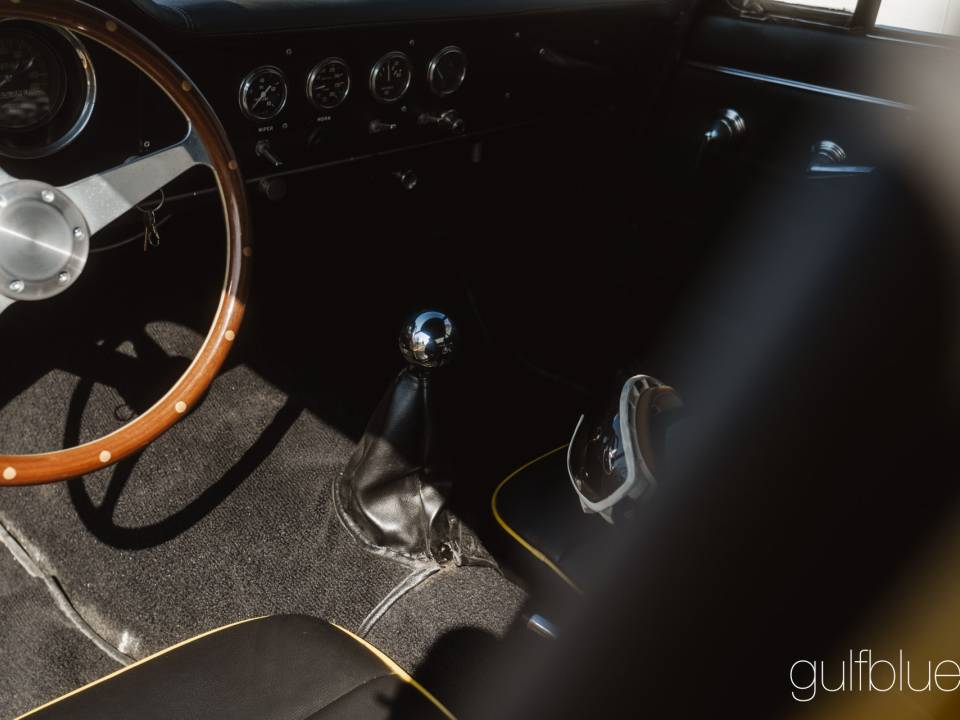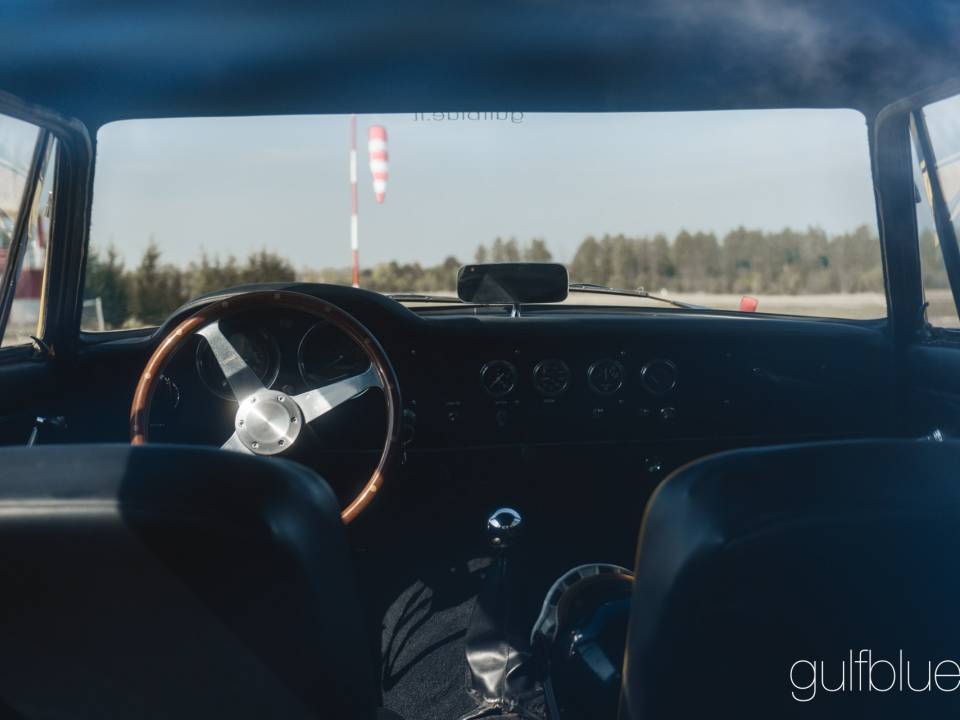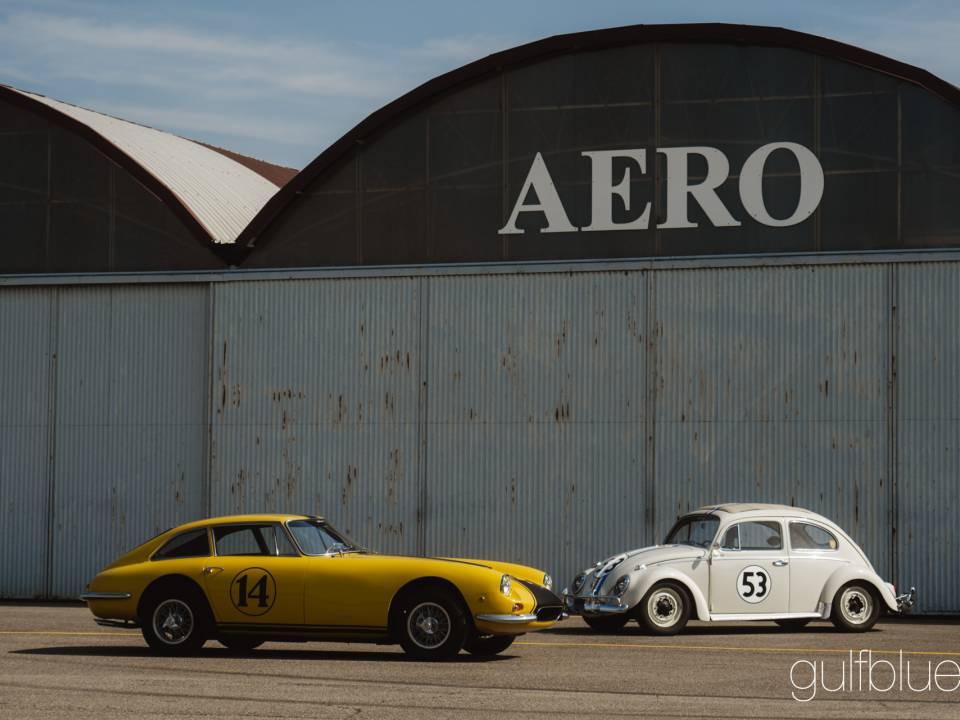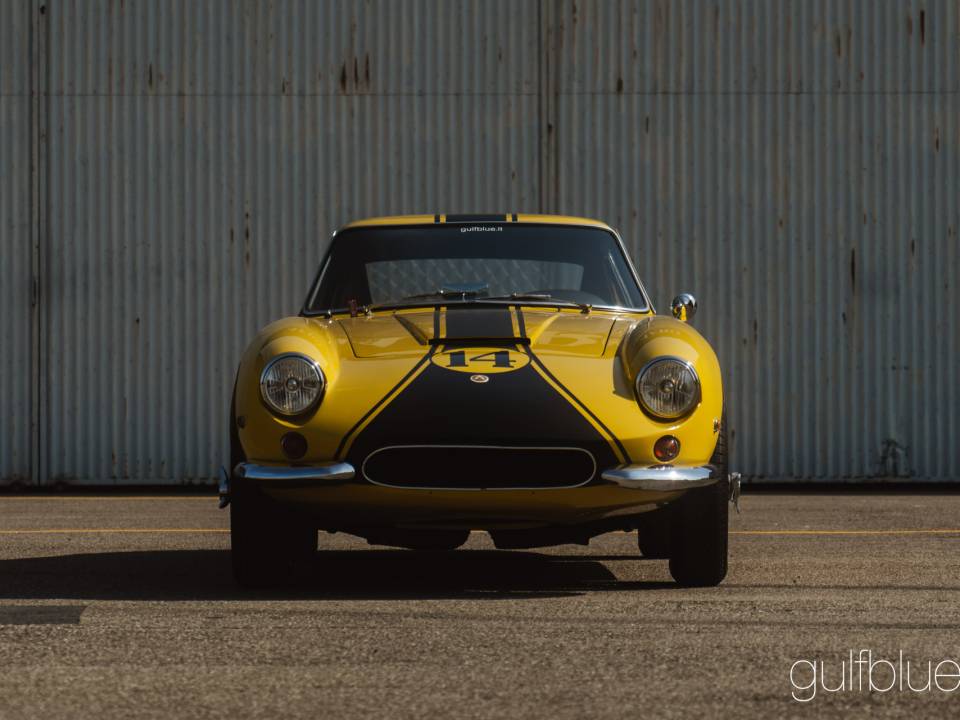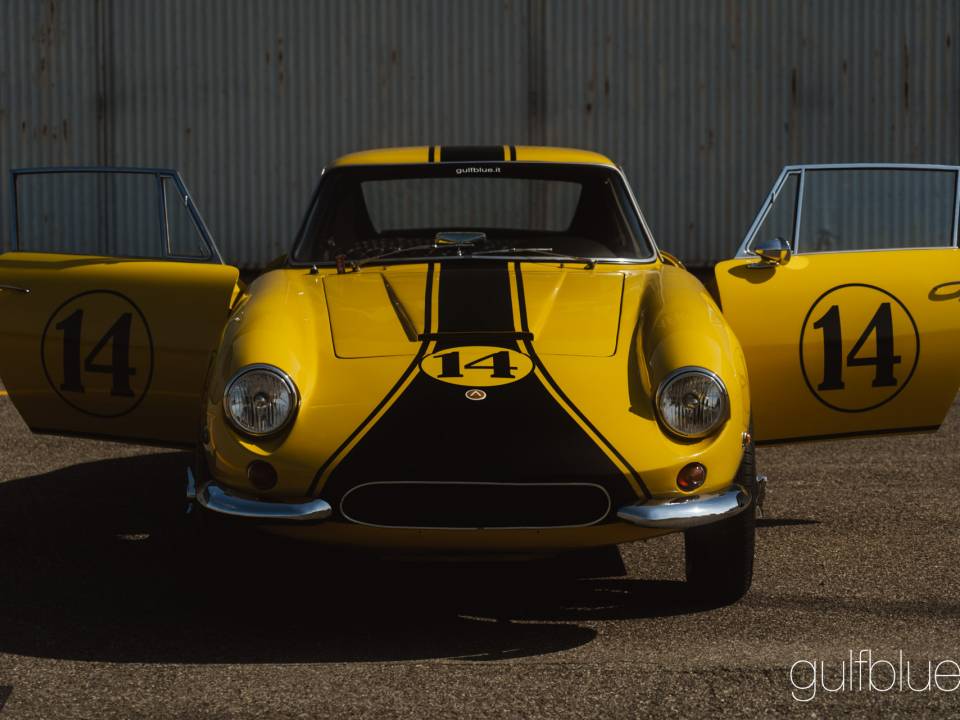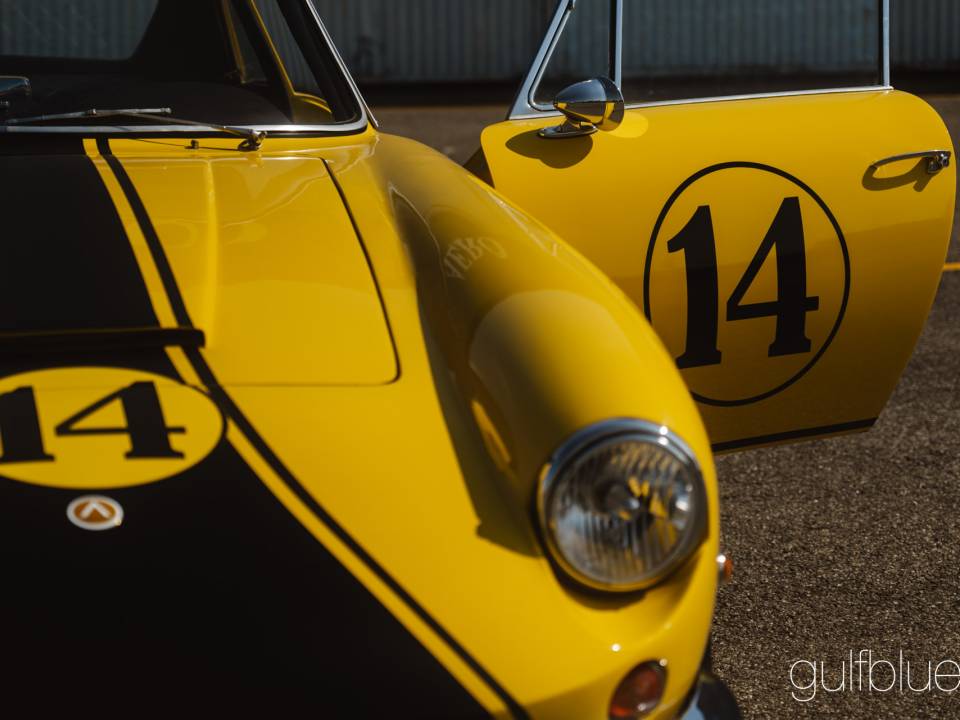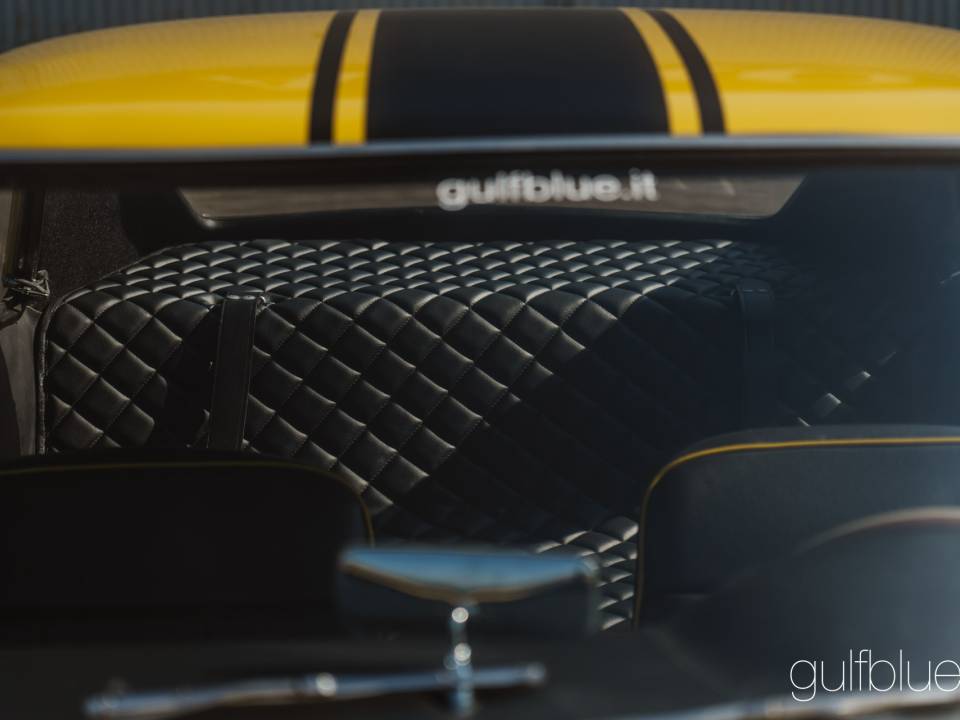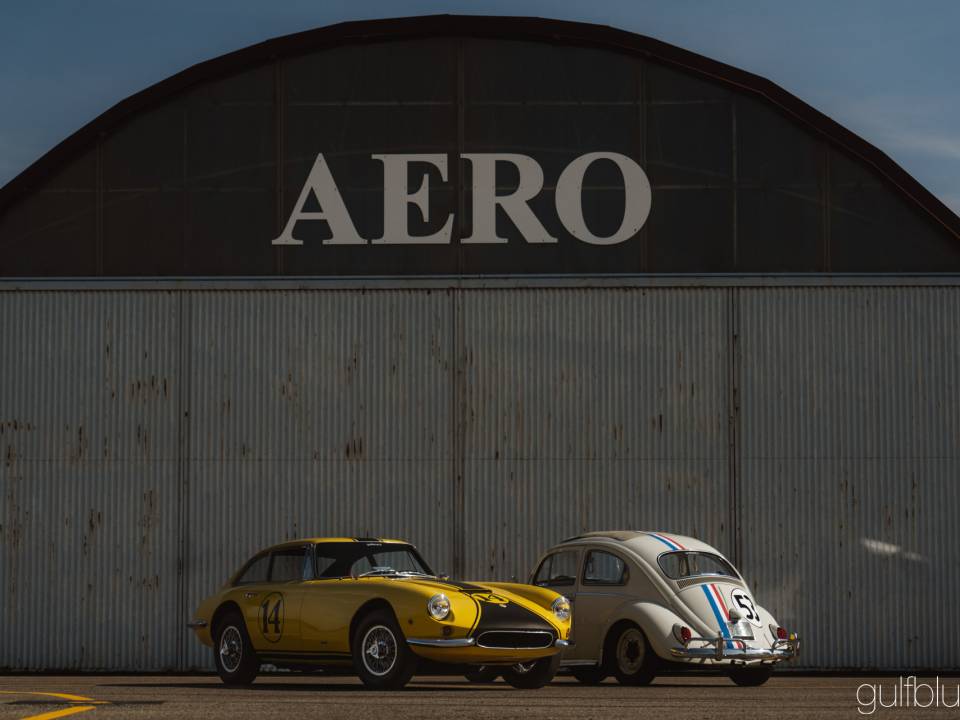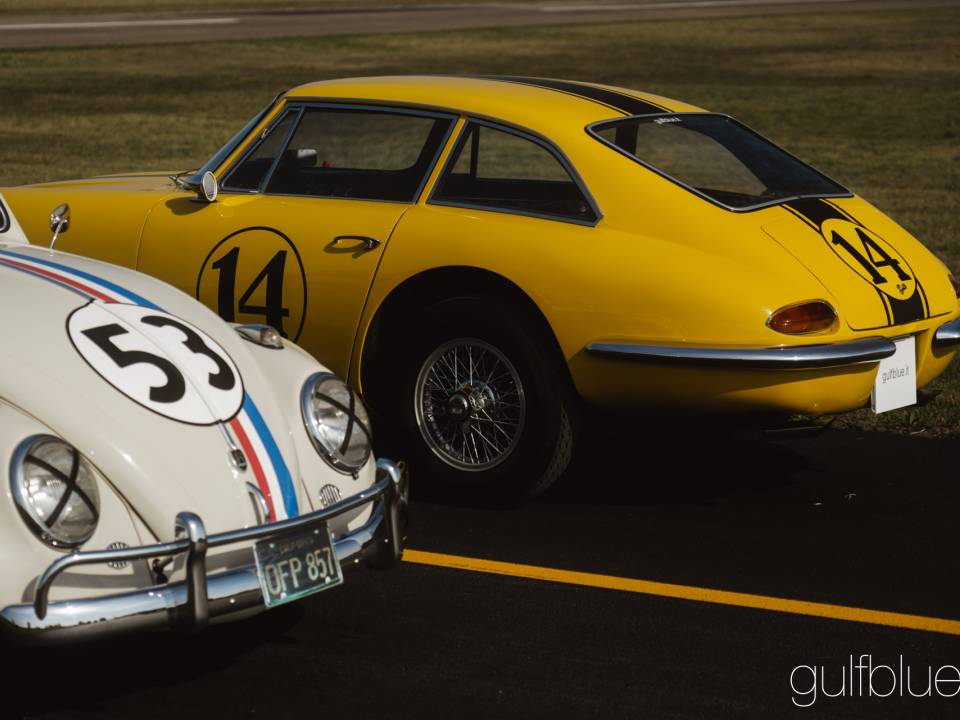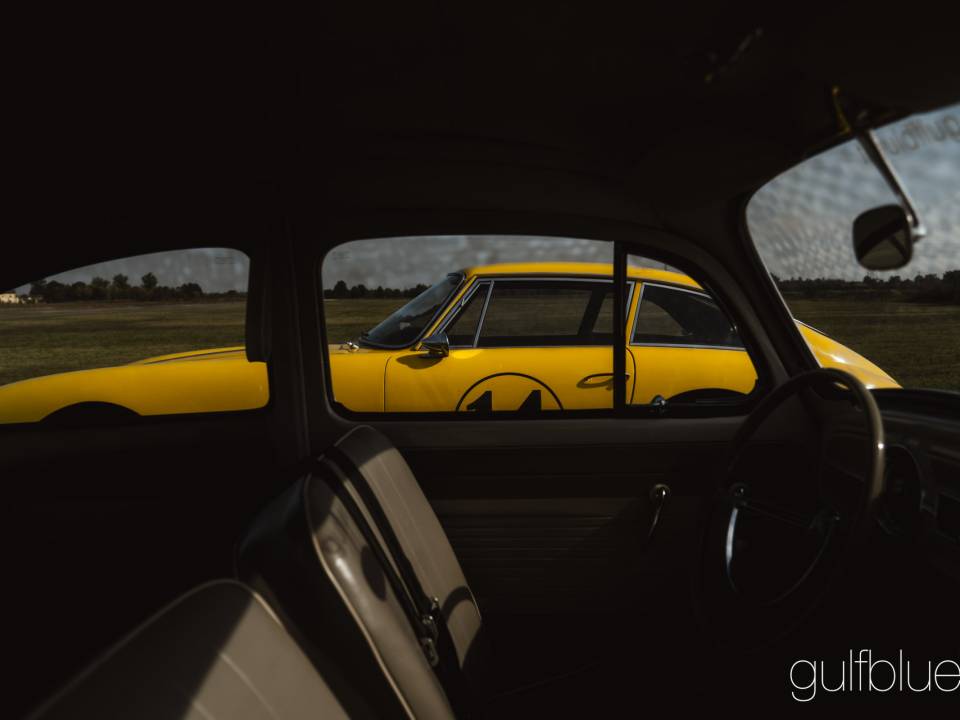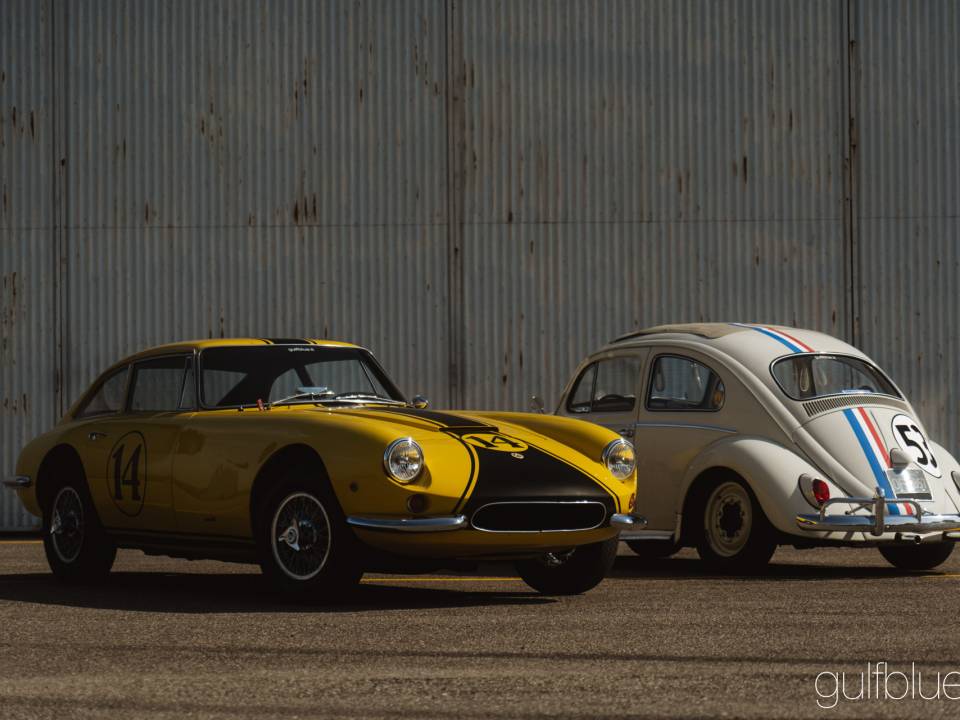1965 | IMC Apollo 5000 GT
One of 107 produced, "Thorndyke Special" livery,the first produced by Vanguard
One of 107 produced, "Thorndyke Special" livery,the first produced by Vanguard
One of 107 produced, "Thorndyke Special" livery,the first produced by Vanguard
Beschreibung
The American Ferrari: this should have been the Apollo GT.
Stories like this haven't been heard for years... and already at the beginning of the 1960s it almost seemed like a fairy tale. Two young American boys who just graduated in engineering, Milt Brown and Newton Davis, dreamed of building a Gran Touring car that could compete with the Italians and already famous Ferraris. Recipe? Simple enough, in theory: Italian style and body with muscular American mechanics.
Brown had met Frank Reisner, owner of Intermeccanica, a small bodyshop in Turin (Italy), at the 1960 Monaco GP: there the foundations were laid for the new Apollo GT, the dream took shape this way.
The bodywork was sketched by their young friend Ron Plescia and an aluminum prototype was created, which however did not convince the designers.
From Italy the great Italian stylist Franco Scaglione came to the rescue and created an extremely elegant shape, characterized by muscular sides similar to what will be the Ferrari 275 GTB, the long, noble, clearly Italian nose and the tail very similar to the Jaguar E (but using the same lights as the Ferrari 250!).
An exotic body handmade of steel, by various sub-suppliers in Turin that belonged to Intermeccanica, which assembled and shipped the complete car to the workshop in California, where the manufacturer IMC assembled the mechanics and completed it.
The car was beautiful - both coupé and convertible available - the 3500 Buick V8 engine was perhaps considered unreliable but overall the press expressed positively. The approximately 215 horsepower were enough, but when Buick launched the new 5000 engine the Apollo could count on over 250 American horses with which to try to beat the “Prancing Horse”.
Unfortunately, the funds available to the company were few ($21,000 loaned by friends and relatives of the two engineers) and the cars were sold under price compared to the production costs. Only 6500 Dollars (7400 for the cabriolet). Considering that the body was entirely handmade, the price was extremely competitive but the break even of $10,000 was a long way off.
After 88 examples built, in 1966 the company was forced to close, handing the project over to the Texan company Vanguaard, which continued production with a further 19 examples, so as not to also cause the bankruptcy of the Italian Intermeccanica, which built the bodywork. Vanguard offered a three-speed automatic transmission as an alternative to the Borg Warner T10/11 manual gearbox; the front disc brakes were always used after the very first examples in which 4 drums were installed, judged insufficient, for sure with the 5000 engine.
The absence of a commercial network did not help the adventure of the two young engineers to sell the car of their dreams, although the moment of glory for Apollo came a little later, in 1967 precisely, when a yellow GT was chosen as co -protagonist of the Disney film “The Love Bug”, in which he played the villain's car. The film was a worldwide success and the Apollo, with that publicity, would probably have remained alive, with improvements and upgrades.
Of the 107 examples built (it seems that another 20 were built in the 1970s, but there are no certain sources), today about half are still alive, mainly in the United States. About sixty cars that make everyone's head spin due to the beauty of their shapes, but often confused for Ferraris... So the Apollo GT lost its challenge against Ferrari, but it is so beautiful that everyone mistakes it for a car with the “prancing horse” on top of the hood!
The example we propose should be the first completed under the new Vanguard property in 1967: it features an automatic gearbox and is perhaps the first with this type of option. In 2008 the car was sold to the penultimate owner in the United States, before being registered a few years later in Italy. In that period the car underwent some work, also with the help of Milt Brown who helped the owner to correct some non-originalities.
The chassis looks good overall, as does the bodywork which has been recently refreshed. The interior and the electrical system require some attention, as does the mechanics, which are in good condition overall. There is the possibility to install a manual transmission. The livery which recalls the famous Disney film is completely adhesive, therefore removable. The Borrani rims are in good condition and the tires are new.
The Italian components used for the bodywork and interior, together with common American mechanics, make the maintenance and overhaul simpler than expected. With over 250 horsepower, the car is certainly pleasant to drive and can finally prove to be the anti-Ferrari, like other similar experiments made in the 1960s, such as the AC Cobra and the Bizzarrini 5300 GT Strada.
A very rare opportunity in Europe to bring home a truly rare, iconic, unusual supercar, which can be entered in various events for historic cars.
Italian documents, visible by appointment in Bologna.
Fahrzeugdetails
Fahrzeugdaten
- Marke
- IMC
- Modellreihe
- Apollo
- Modell
- Apollo 5000 GT
- Erstzulassung
- 04.1967
- Baujahr
- 1965
- Tachostand (abgelesen)
- Fahrgestellnummer
- Nicht angegeben
- Motornummer
- Nicht angegeben
- Getriebenummer
- Nicht angegeben
- Matching numbers
- Nein
- Anzahl Besitzer
- Nicht angegeben
Technische Details
- Karosserieform
- Coupé
- Leistung (kW/PS)
- 187/254
- Hubraum (cm³)
- 4923
- Zylinder
- 8
- Anzahl Türen
- 2
- Lenkung
- Links
- Getriebe
- Automatik
- Gänge
- 4
- Antrieb
- Nicht angegeben
- Bremse Front
- Scheibe
- Bremse Heck
- Trommel
- Kraftstoff
- Benzin
Individuelle Konfiguration
- Außenfarbe
- Gelb
- Innenfarbe
- Schwarz
- Innenmaterial
- Leder
Zustand & Zulassung
- Zustandskategorie
- Restauriert
- Gutachten vorhanden
- Nicht angegeben
- Zustand
- Zustandsbericht beauftragen
- Zugelassen
- Fahrbereit
